Konferencedag 1
09:00
Registrering, morgenkaffe, hils på sponsorerne
10:00
Samarbejde om digital forskningsinfrastruktur for en bedre fremtid
Gitte Kudsk, Direktør, DeiC
10:10
Velkomst ved Per Bruun Brockhoff, Rektor, ITU
10:25
En verden af digitale muligheder
Spor 1
Annemarie Falktoft, Vicedirektør, Uddannelses- og Forskningsstyrelsen
10:40
Visioner for den digitale forskningsinfrastruktur
Gitte Kudsk, Direktør, DeiC, og John Renner Hansen, Bestyrelsesforperson, DeiC
11:30
Pause
12:00
Nordiske forbindelse som udgangspunkt for europæisk samarbejde og udvikling
Spor 1
Lars Fischer, Chief Relations Officer, NORDUnet
Nordiske forbindelse som udgangspunkt for europæisk samarbejde og udvikling
NORDUnet blev skabt i firserne for at forbinde de nordiske forskningsnet - bl.a. DeiC - med hinanden og med resten af verden. Siden har NORDUnet udviklet sig til en platform for samarbejde mellem de nordiske forskningsnet og for nordiske deltagelse i Europæisk og globalt samarbejde. Gennem dette samarbejder leveres et global netværk, der forbinder DeiC til resten af verden, og der drives tjenester som Zoom, Kaltura, m.fl. som DeiC kan levere til danske universiteter.
Gennem den nordiske forbindelser deltager DeiC i Europæisk og global samarbejde om udvikling netværk og tjenester. Gennem NORDUnet er DeiC en del af det Europæiske forskningsnet GÉANT og deltager i Europæiske projekter. Via nordiske samarbejde har norden indflydelse på og mulighed for både at bidrage til og udnytte resultaterne af Europæiske samarbejde.
Talen vil give eksempler på dansk og nordiske deltagelse i europæiske samarbejde, og på hvordan det giver os mulighed for at levere unikke tjenester til danske brugere såvel som at præge den euroæiske udvikling af af alt fra netværk og logintjenester til supercomputere til udvikling af sikkerhedstjenester til forsknings- og undervisningssektoren.
12:30
Frokost
13:30
Sal A
Data Management
DataverseNO – building TRUST through collaboration
Philipp Conzett, UiT
DataverseNO - building TRUST through collaboration
DataverseNO is a national, generalist repository for research data from researchers from Norwegian research organizations. The repository is operated by UiT The Arctic University of Norway on behalf of a national consortium consisting of universities and research institutes. To guide us on our continuous path towards trustworthiness, DataverseNO has endorsed two fundamental principles, TRUST and POSI.
The TRUST Principles for Digital Repositories are a set of guiding principles to demonstrate the trustworthiness of digital repositories (Lin et al. 2020). TRUST is a mnemonic for Transparency, Responsibility, User focus, Sustainability and Technology, and forms the backbone of the CoreTrustSeal requirements for Trusted Digital Repositories.
POSI – the Principles of Open Scholarly Infrastructure – are a set of guidelines for how to run and sustain scholarly infrastructure (Bilder et al. 2023). The POSI principles are intended to help organizations shape foundational decisions about governance, funding, and technology strategies as part of their continuous efforts to gain and maintain the trust of the community they serve.
At DataverseNO, we rely on collaboration as a key factor in our continuous efforts to implement the TRUST and POSI principles. In this presentation, I will outline how we collaborate at local, national and international levels to sustain and enforce DataverseNO as a Trusted Digital Repository and a cornerstone in the national research infrastructure ecosystem of Norway.
About Philipp Conzett
Philipp Conzett is a Senior Research Librarian at the University Library at UiT The Arctic University of Norway. As a member of the library’s research support team, he devotes much of his time to Open Science, especially research data management. He is the repository manager of DataverseNO (https://dataverse.no) and of the Tromsø Repository of Language and Linguistics (TROLLing; https://trolling.uit.no).
Sal B
Sikkerhed
DCIS-UFM i praksis: arbejdsgange, læringer og mål anno 2024
Pernille Ulrich, Kontorchef for Forskningssikkerhed, Databeskyttelse og Informationssikkerhed, Uddannelses- og Forskningsministeriet
DCIS-UFM i praksis: arbejdsgange, læringer og mål anno 2024
Uddannelses- og Forskningsministeriets decentrale cyber- og informationssikkerhedsenhed (DCIS-UFM) har siden sin etablering i 2022 arbejdet på at fremme implementeringen af Ministeriets sektorstrategi. Det er bl.a. sket via drøftelser i DCIS-styregruppen om den praktiske implementering af sektorstrategiens initiativer. I dette oplæg vil kontorchef for Forskningssikkerhed, Databeskyttelse og Informationssikkerhed, Pernille Ulrich, fortælle om, hvordan DCIS-UFM og universiteterne i fællesskab løbende arbejder på at højne universitetssektorens modenhed, bl.a. ved at tilpasse metoderne for måling af sektorstrategiens initiativer. Det forventes, at der også fremadrettet vil arbejdes med nye og tilpassede initiativer, som afspejler sektorens modenhedsniveau.
Om Pernille Ulrich
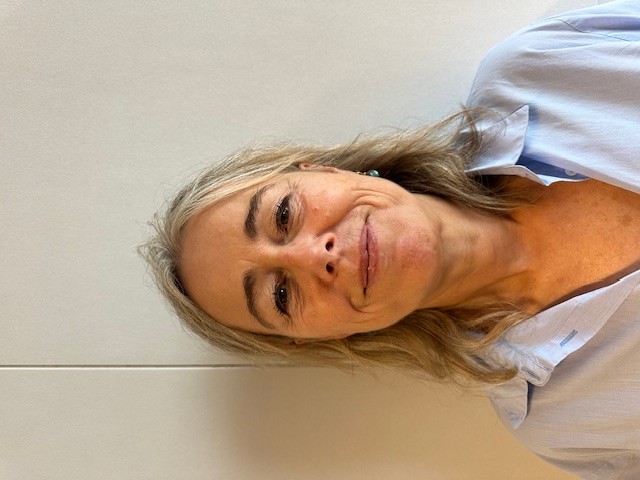
Pernille Ulrich er pr. 12. september 2024 kontorchef for kontoret for Forskningssikkerhed, Databeskyttelse og Informationssikkerhed. Pernille har været kontorchef i Uddannelses- og Forskningsstyrelsen gennem ca. 17 år i flere forskellige funktioner, senest med ansvar for universiteterne og de kunstneriske institutioner.
Sal C
HPC
Introduction to MyAccessID - The Highlights
Michal Stava, GÉANT
Sal E
Netværk og Tjenester
Netværk og tjenester - status og overblik
Martin Bech, DeiC Forskningsnettet
Netværk og tjenester - status og overblik
En overflyvning over hvad der er nyt og aktuelt med Forskningsnet og tjenester. Det handler bl.a. om
- Nye forbindelser og lokationer
- EuroHPC JU-udbuddet om terabit net
- QCI.dk-projektet med kvantekrypteret net
- Dashboard
- Nyheder om tjenester
Om Martin Bech
Martin Bech er Chef for Forskningsnettet siden 2001 og har i øvrigt været med lige fra internettets begyndelse. Han har oprindelig en teknisk baggrund, men har i mange år mest beskæftiget sig med ledelsen og videreudviklingen af net og tjenester, samt en række internationale projekter og samarbejder.
14:00
Blok overskrift
Sal A
Entrust and Sensitive Data
EOSC ENTRUST - Sensitive Data in a Trusted Research Environment
Jakob Bech Petersen, DeiC
EOSC ENTRUST - Sensitive Data in a Trusted Research Environment
EOSC-ENTRUST is about enabling research on sensitive data within a network of Trusted Research Environments (TREs). Bringing data together within and across domains, such as health and finance, is extremely challenging due to the controls put in place to segregate those data. ENTRUST could offer a concrete anchoring point as a thematic or national EOSC NODE.
Main deliverables are:
- a blueprint architecture for a Trusted Research Environments (TRE)
- a European network enabling research projects using connectivity between TREs
- Focus is on:
- sensitive data management and HPC processing – modeling, simulation and data analytics on sensitive data from many locations
- interoperability, standardisation and convergence of security and sensitive data governance, policy and technology
- compliance to agreed ways of establishing and operating TREs, enabling trust-based movement of data and compute algorithms, across the TRE network
Despite not having a blueprint, DeiC is already incorporating learnings from ENTRUST, in relation to implementing requirements and technical specifications in its planning of a future national HPC systems for sensitive data and coverage of GPU demand.
About Jakob Bech Petersen
My role in DeiC Data Management will primarily focus on working with Danish registries and research on sensitive data. I have a range of tasks associated with activities in Det Koordinerende Organ for Registerforskning (KOR), where I provide secretarial support, coordinate meetings, and the annual register research conference. Additionally, I will act as a liaison for the Data Management network under KOR and work with DeiC Sensitiv Storage and the upcoming EU project EOSC-ENTRUST. My educational background began with a bachelor's degree in Techno-Anthropology from Aalborg University in Copenhagen (AAU-CPH), followed by a master's degree in IT from IT University in Copenhagen (ITU). Since starting my studies, I have been involved in data collection through projects involving register-based survey research as the core.
Sal B
Sikkerhed
Aflyst
Sal C
HPC
Introduction to MyAccessID - How to implement it at HPC/DM facility
Michal Stava, GÉANT
Sal E
Netværk og Tjenester
Fælles tjenester og udbud i Norden
Jørgen Qvist, Chief Operating Officer, NORDUnet
Fælles tjenester og udbud i Norden
En opdatering på NORDUnets tjenester og etableringen af et dynamisk Indkøbssystem, samt hvad det potentielt kan betyde ift. muligheder for de nordiske NRENs og alle organisationer, der har mulighed for at udnytte det.
About Jørgen Qvist
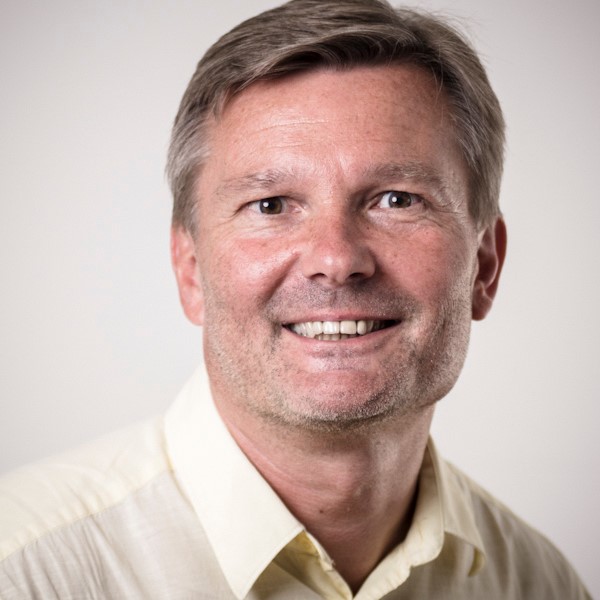
Having worked as a decision-maker in the Telecommunications and IT area for 30+ years, I have built a wide range of technical competencies and a practical approach to leadership and management. I love to make things work, and I have built a career working extensively with service and business development as well as technology and operational management. As a member of senior management teams, I draw strength from my hands-on experience when organising the difficult transition from start-up company to sustained business. I’m also highly engaged in the international research and education community, and I participate in various Nordic, European, and Global collaborations, where I chair projects in the areas of global service delivery and network services. This includes facilitating new infrastructure projects and research activities.
14:30
Blok overskrift
Sal A
Amazon Web Services
Introducing RDM solution from AWS
Dr. Bruno Silva
Introducing RDM solution from AWS
Research is undergoing a profound shift towards greater openness, reproducibility, and impact. Driven by policies and the sheer volume, researchers are facing challenges in managing, curating, and sharing data. AWS’ research data management (RDM) solutions based on AWS services and partners, empowers researchers and institutions to unlock their data. RDM addresses the pain points that have hampered research data management: Discover and Manage Data Across Silos: Starfish, a powerful data discovery and orchestration tool, scans and catalogues your files and directories across physical locations, providing you with complete visibility and control over your data. Easily Curate and Share: LabDrive equips you with the tools and security controls to annotate, curate, and share your data. Capability at Cloud Scale: With your data hosted in the cloud, you can leverage AWS capabilities to perform advanced analysis at scale. RDM offers a seamless and comprehensive solution to the challenges facing the modern research.
About Bruno Silva
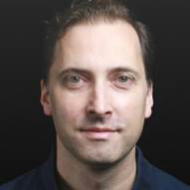
Dr. Bruno Silva, a Theoretical Molecular Physics PhD from University College London (UCL), is passionate about advancement of computational science and the importance of well-designed research computing services. He led University College London's Research Computing Services team (2009-2014), and kickstarted and led the newly founded Francis Crick Institute's HPC and Research data services (2014-2020). In 2020, Bruno joined AWS, first as Technical Business Development Manager for Research and HPC, then leading the UCL-AWS Centre for Digital Innovation collaboration to support high social impact research spin-offs. He holds an Honorary Associate Professorship in Advanced Research Computing at UCL. He also advises the Dare UK project and serves on the UK Science and Technology Facilities Council e-Infrastructure Advisory Group, contributing to the advancement of research infrastructure in the UK.
Sal B
Sikkerhed
Mål og retning for DKCERT i et skærpet trusselsbillede
Jacob-Steen Madsen, DKCERT
Mål og retning for DKCERT i et skærpet trusselsbillede
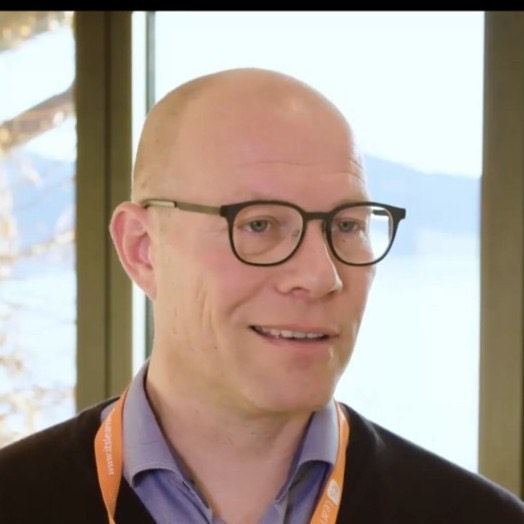
Jacob-Steen Madsen blev i sommeren 2024 ny chef for DKCERT. Jacob har tidligere været IT-chef på SDU – og som bruger af bl.a. forskningsnettet og DKCERTs tjenester har Jacob fået et domænekendskab, som han tager med sig ind i arbejdet med at give brugerne af DKCERTs tjenester endnu mere værdi.
I sit oplæg vil Jacob gøre status over de første fem måneder i chefstolen og lægge sine planer frem for udviklingen af DKCERT i de kommende år, DKCERTs rolle som CSIRT for uddannelses- og forskningssektoren i dagens trusselsbillede og samarbejdet med både nye og gamle aktører på dagsordenen.
Om Jacob-Steen Madsen
Jacob-Steen Madsen er chef for DKCERT og tidligere CIO på SDU, UCL og Socialstyrelsen.
Sal C
HPC
SSH certificates for a federated world
Mads Freek Petersen, WAYF, og Mikkel Hald, WAYF
SSH certificates for a federated world
Can we scale and secure SSH access by leveraging federated identity and SSH certificates? At this talk, WAYF will present a GÉANT service developed in Denmark that allows this.
Sal E
Netværk og Tjenester
OCRE2024 - tag en faldskærm med op i skyen
Morten Kjeldgaard, Chefkonsulent, DeiC Forskningsnettet
OCRE2024 - tag en faldskærm med op i skyen
Et af de hurtigst voksende områder er de kommercielle cloudtjenester. Alle bruger dem, men det er ikke alle, der får den rabat de kan opnå. Hør om fremtiden på dette område. De nye aftaler på skytjenester for F&U træder i kraft i q1 2025. Oplægget vil indlede med, hvordan og i hvilket omfang de nuværende OCRE aftaler benyttes af institutionerne tilknyttet forskningsnettet. Dernæst bliver fokus på, hvordan man som institution bedst forbereder sig til de kommende aftaler, og hvordan man bedst benytter dem. Tilbuddene på skytjenester til den danske F&U-sektor er aktuelt ved at blive evalueret og kvalitetssikret. Vi vil derfor ikke kunne fortælle, hvilke konkrete forhandlere der vil være af såvel de store, som Azure og AWS, som de europæiske skyplatforme. Men vi kan fortælle, hvordan kontrakterne og platformene vil påvirke købsmulighederne på de nye kontrakter.
Om Morten Kjeldgaard
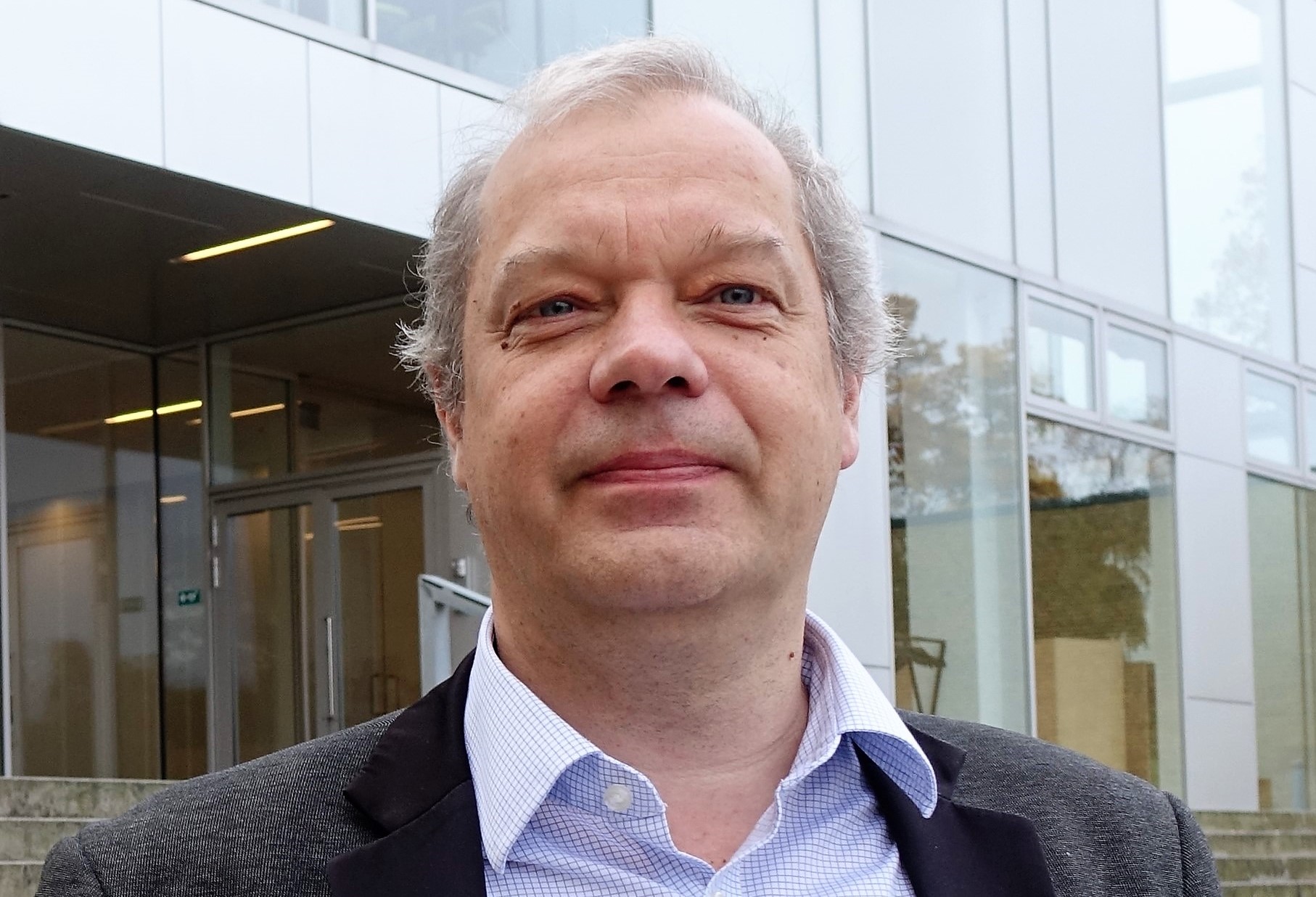
Morten Kjeldgaard er ansat som chefkonsulent hos DeiC og er tjenesteansvarlig på dette område. Morten varetager blandt andet rollen som ”cloud manager” for OCRE aftalerne i Danmark og deltager i det europæiske samarbejde omkring OCRE og relaterede samarbejder vedrørende skytjenester.
15:00
Pause
15:30
Blok overskrift
Sal A
Kvanteinfrastruktur
Styrkelse af nationale aktiviteter til udvikling og test af kvantealgoritmer og relateret software
John Renner Hansen, Bestyrelsesforperson, DeiC, og forperson for kvanteakademirådet, Dansk Kvantealgoritme Akademi
Styrkelse af nationale aktiviteter til udvikling og test af kvantealgoritmer og relateret software
I den nationale Strategi for Kvanteteknologi Del 1 udpeges DeiC til at iværksætte initiativer så Danmark kan deltage i konsortier med de bedste forskningsgrupper inden for supercomputerområdet (HPC) om f.eks. udvikling af næste generation af algoritmer og software relateret til kommende kvantecomputere og kvantesimulatorer.
Til styrkelse af de nationale aktiviteter på udvikling og test af kvantealgoritmer og relateret software. Danish Quantum Algorithm Academy (DQAA) er hertil under DeiC, som uddeler stipendier på Ph.d. og post. doc niveau og skaber et nationalt økosystem for algoritme udvikling på højt internationalt niveau. De Ph.d.-studerende og post. doc er ansat på danske universiteter og i private virksomheder (erhvervs post doc og erhvervs-ph.d.). Udover at varetage stipendieprogrammet skal akademiet varetage en national koordinerende funktion, med bl.a. understøttelse af workshops, arbejdsmøder, et gæsteprogram og andet, som kan fremme udviklingen.
Sal B
HPC
Get access to European Compute time with EuroCC 2 and find out what AI Factories can offer academia
Dennis Lange Wollbrink, Leader of the Danish National Competence Centre, EuroCC 2, and Javier Cordova Morey, Policy Officer, European Commission
Get access to European Compute time with EuroCC 2 and find out what AI Factories can offer academia
In this session you will get an introduction to the vast possibilities for academia within the European world of HPC. Get all the insights on how can facilitate your access to and usage of European HPC clusters and what the AI Factories will be and how they will provide a valuable service to the world of academia.
Sal C
Data Management
The Submerse project - a European Data Challenge
Chris Atherton, GÉANT
The Submerse project - a European Data Challenge
It’s nice to work on the latest technological innovation but to make things usable by more than 3 people the data that is generated needs to be shared. In an age when research funding is being stretched and justification of project resources is questioned time and time again, scalability (as in use by multiple user communities) and impact (the societal benefits that you get) are two of the biggest determining factors in a project being funded. With SUBMERSE we are lucky to be working on an innovative idea which could have a lot of impact, using existing telecommunications cables under the sea as sensors. But to have scalability of the project requires data management and data dissemination techniques. In this presentation the SUBMERSE project will be presented, the early challenges with data dissemination, and the possible way forward we’ve come up with for scaling data access for a distributed, multinational, earth observing research instrument.
About Chris Atherton
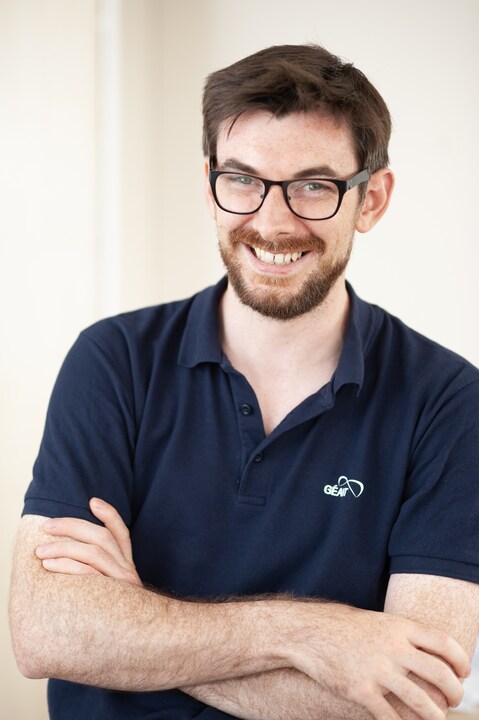
Chris Atherton is a Senior Research Engagement Manager at GÉANT, an e-infrastructure organisation based in the Netherlands, with over 20 years of experience in the IT and Space industries. He has been instrumental in supporting international user communities and research organisations by identifying and developing new solutions to meet specific research requirements in Earth Observation, Astronomy, and Planetary Science. Chris is currently leading the technical work package for the EU-funded SUBMERSE project, which aims to transform existing submarine fibre-optic cables into sensors for detecting earthquakes and tsunamis. He played a crucial role in forming the project consortium with the collaboration of research and industry stakeholders. SUBMERSE not only seeks to enhance the utility of existing infrastructure but also aims to pioneer the integration of Distributed Acoustic Sensing (DAS) and State of Polarisation (SoP) technologies for continuous monitoring of the Earth’s systems using live telecom cables. Chris's work in this field has positioned him at the forefront of innovative research that bridges the gap between computer networking technology and environmental monitoring.
Sal E
Sikkerhed
Part 1: Using SIE Europe passive DNS for hunting phishing and smishing attacks: Introducing SIE-Europe and why privacy and GDPR is key to our partnership. Understanding the power of pDNS
Dr. Paul Vixie, SIE Europe, and Peter Kruse, SIE Europe
Using SIE Europe passive DNS for hunting phishing and smishing attacks: Introducing SIE-Europe and why privacy and GDPR is key to our partnership. Understanding the power of pDNS
The Security Information Exchange of Europe (SIE-Europe.NET) is a managed network facilitating the sharing of real time network telemetry. The purpose of SIE-Europe is to make the Internet safer by improving European visibility. Supported data types within SIE-Europe will eventually include network telescope output, spam trap output, honeypot output, and Passive DNS. pDNS data can be a powerful tool when it comes to tracking down criminal operations and campaigns spanning from smishing and phishing to APT and targeted attacks. This joint presentation of co-founders of SIE Europe, Dr. Paul Vixie and Peter Kruse will highlight how pDNS can be used in investigations and forensics.
About Dr. Paul Vixie
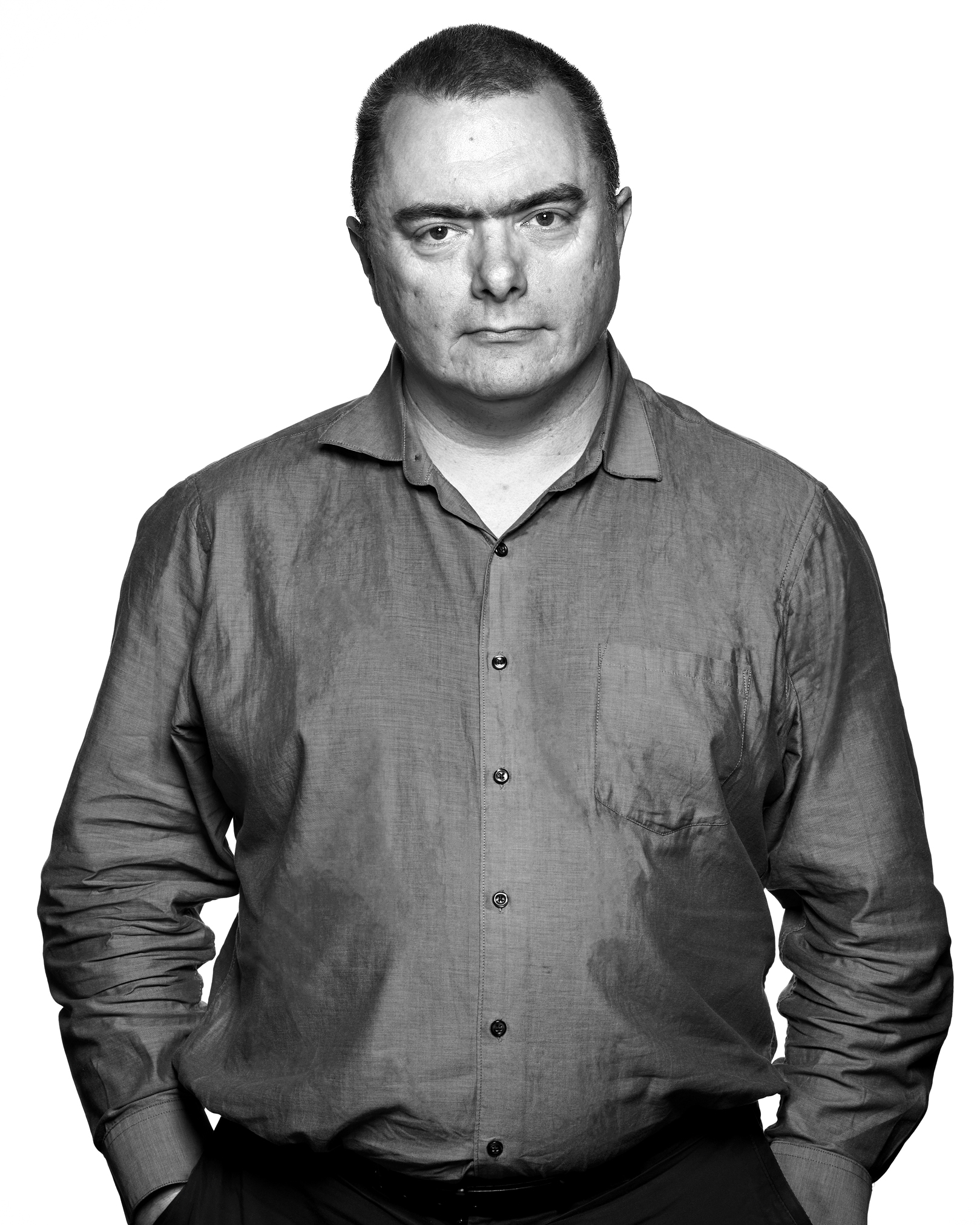
Dr. Paul Vixie was inducted into the Internet Hall of Fame in 2014 for work related to DNS. Dr. Vixie is a prolific author of open source Internet software including BIND, and of many Internet standards documents concerning DNS and DNSSEC. In addition, he founded the first anti-spam company (MAPS, 1996), the first non-profit Internet infrastructure software company (ISC, 1994), and the first neutral and commercial Internet exchange (PAIX, 1991). He earned his Ph.D. from Keio University for work related to DNS and DNSSEC in 2010.
In 2021, Vixie's company FarSight Security was acquired by DomainTools. Since 2022, he has been working at AWS.
About Peter Kruse
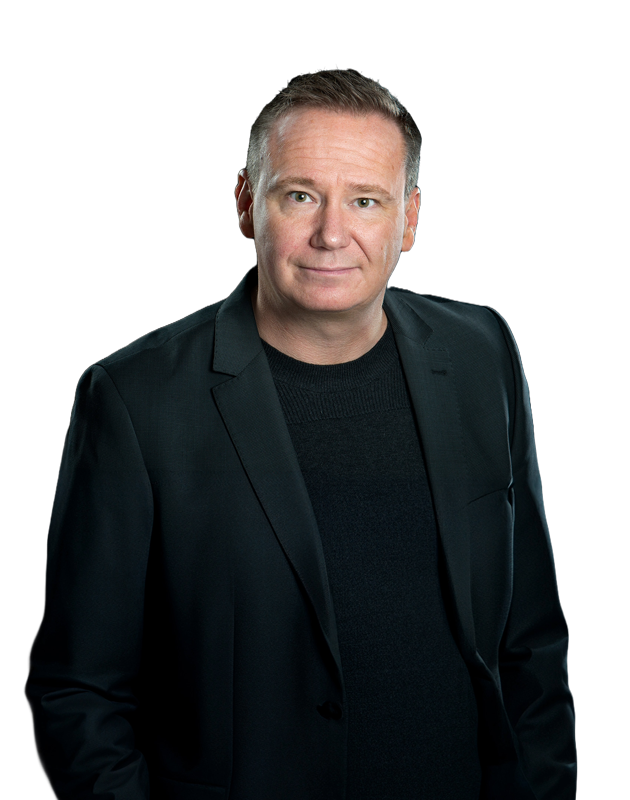
Peter Kruse is a prominent figure in IT security in Denmark with more than 20 years of experience in cybercrime and malware analysis. He has established himself as one of the most respected experts in the industry and is known for his extensive knowledge and commitment to combating cyber threats. As co-founder of CSIS Group, Heimdal Security, Defendas, SIE Europe Peter has played a central role in shaping and strengthening the IT security infrastructure both nationally and internationally. His work has helped protect countless organizations from complex cyber attacks, and his expertise has made him a sought-after speaker at international conferences. Peter is as the only one from Denmark a member of the highly respected CARO (Computer Antivirus Research Organization), and he is active in several closed operational security groups. He currently holds the position as CISO at Clever.
16:00
Blok overskrift
Sal A
Kvanteinfrastruktur
Adgang til kvantecomputere
Jørgen Ellegaard Andersen, Leder af Center for Kvantematematik ved Institut for Matematik og Datalogi, SDU
Adgang til kvantecomputere
DeiC har i den nationale kvantestrategi fået ansvar for at sikre adgang til test- og produktionsplatforme, som kobler brugerne til læringsmiljøer og produktionsressourcer ved eksisterende kvantecomputere og til HPC-anlæg, som med fordel kan bruges til opbygning af erfaring på kvanteteknologiområdet. Det er essentielt, at brugerne får mulighed for at anvende forskellige teknologier og hybridkonfigurationer af traditionelle HPC-anlæg og egentlige kvantecomputersystemer. Dette kan foregå på nationale eller internationale anlæg. Adgangen skal omfatte aktiviteter overfor universiteterne, offentlig administration og industri og understøtte mulighed for adgang under de betingelser, der gælder for de forskellige sektorer.
Sal B
HPC
“Weather or not to use GPUs” - a EuroCC 2 success story with the Danish Meteorological Institute
Three presentations from DMI experts
Irene Livia Kruse, DMI, Eleni Briola, DMI, and Simon Kamuk Christiansen, DMI
“Weather or not to use GPUs” - a EuroCC 2 success story with the Danish Meteorological Institute - Three presentations from DMI experts
DMI is leveraging the ability of LUMI to handle the computational demands of training three proposed machine learning models: Neural-LAM, SHADEcast and LDcast, for weather forecasting, solar radiation nowcasting and precipitation nowcasting respectively. By training on high-resolution weather data, these algorithms will predict long-term (forecasting) and short-term (nowcasting) weather patterns in a matter of minutes on single GPU systems. In this session you will learn how the Danish National Competence Center for HPC in Project EuroCC 2 can give companies and public sector entities access to supercomputers and what projects are in the pipeline.
About Irena Livia Kruse
Irene Livia Kruse is a Danish-Italian Research Scientist at DMI. She holds an MSc in Climate Physics from Utrecht University and has obtained a PhD in Atmospheric Physics from Copenhagen University, focusing on simulating storm clouds and predicting the onset of these. Eleni Briola is a Greek Machine Learning Scientist at DMI. She holds both an MEng and MSc in Machine Learning from the Democritus University of Thrace. Currently, she is in the final stages of completing her PhD, where her research focuses on Machine Learning and Privacy Enhancing Technologies. Simon Kamuk Christiansen is a Danish Machine Learning scientist at DMI. He holds an MscEng in mathematical modelling and computation, and has worked with both numerical methods and machine learning models for simulating physical systems.
Sal C
Data Management
Maritime Surveillance from Space to Seabed
Henning Heiselberg, DTU
Maritime Surveillance from Space to Seabed
An overview is given of maritime surveillance using satellite imagery. Secondly, optical fiber cables on the seabed for distributed acoustic sensing, where we can hear ships, whales, earth quakes, ao. In both cases we use AI for faster, better and automatic detection, classification and identification. Including deep neural networks, YOLO and face recognition algorithms, quantum GAN, etc. Case studies will be shown where we detect dark ships that illegally have turned off their transponders.
About Henning Heiselberg
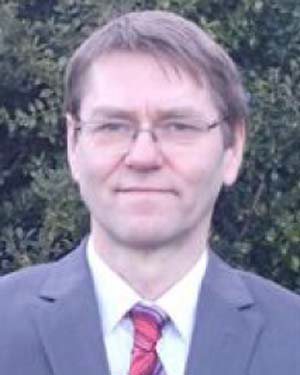
Henning Heiselberg received his Ph.D. degree in physics from the University of Aarhus, Aarhus, Denmark, in 1987. He has held positions at Nordita, Univ. Of Illinois, Lawrence Berkely lab, and MoD. He is currently Head of Center for Security, and senior scientist at the National Space Institute, Technical University of Denmark. He has authored 140 journal papers and scientific books. His current research interests include remote sensing, artificial intelligence for Arctic, Space and Seabed surveillance.
Sal E
Sikkerhed
Part 2: Using SIE Europe passive DNS for hunting phishing and smishing attacks: How to get started and what to expect as a contributor to the SIE-Europe pDNS network
Dr. Paul Vixie, SIE Europe, and Peter Kruse, SIE Europe
Using SIE Europe passive DNS for hunting phishing and smishing attacks: How to get started and what to expect as a contributor to the SIE-Europe pDNS network The Security Information Exchange of Europe (SIE-Europe.NET) is a managed network facilitating the sharing of real time network telemetry. The purpose of SIE-Europe is to make the Internet safer by improving European visibility. Supported data types within SIE-Europe will eventually include network telescope output, spam trap output, honeypot output, and Passive DNS. pDNS data can be a powerful tool when it comes to tracking down criminal operations and campaigns spanning from smishing and phishing to APT and targeted attacks. This joint presentation of co-founders of SIE Europe, Dr. Paul Vixie and Peter Kruse will highlight how pDNS can be used in investigations and forensics.
About Dr. Paul Vixie

Dr. Paul Vixie was inducted into the Internet Hall of Fame in 2014 for work related to DNS. Dr. Vixie is a prolific author of open source Internet software including BIND, and of many Internet standards documents concerning DNS and DNSSEC. In addition, he founded the first anti-spam company (MAPS, 1996), the first non-profit Internet infrastructure software company (ISC, 1994), and the first neutral and commercial Internet exchange (PAIX, 1991). He earned his Ph.D. from Keio University for work related to DNS and DNSSEC in 2010.
In 2021, Vixie's company FarSight Security was acquired by DomainTools. Since 2022, he has been working at AWS.
About Peter Kruse

Peter Kruse is a prominent figure in IT security in Denmark with more than 20 years of experience in cybercrime and malware analysis. He has established himself as one of the most respected experts in the industry and is known for his extensive knowledge and commitment to combating cyber threats. As co-founder of CSIS Group, Heimdal Security, Defendas, SIE Europe Peter has played a central role in shaping and strengthening the IT security infrastructure both nationally and internationally. His work has helped protect countless organizations from complex cyber attacks, and his expertise has made him a sought-after speaker at international conferences. Peter is as the only one from Denmark a member of the highly respected CARO (Computer Antivirus Research Organization), and he is active in several closed operational security groups. He currently holds the position as CISO at Clever.
16:30
Blok overskrift
Sal A
Kvanteinfrastruktur
National kompetenceopbyggende indsats for kvanteområdet
Brian Vinter, Prodekan ved Dekanatet, Technical Sciences, AU, og forperson for Q-Competence-arbejdsgruppen
National kompetenceopbyggende indsats for kvanteområdet
I den nationale kvantestrategi har Regeringen og et bredt flertal i Folketinget iværksat en national kompetenceopbyggende indsats i regi af DeiC for at understøtte, at Danmark fuldt ud udnytter adgangen til kvantecomputere og supercomputere (HPC-anlæg) til gavn for dansk forskning og innovation på kvanteområdet. I den offentlige sektor er målgruppen for kompetenceaktiviteterne forskningsinstitutionernes forskere og studerende inden for områder, som potentielt kan anvende kvantecomputere til fremme af forskningen. Især tænkes der på forskning relateret til STEM og Life Science, men generelt på emner, hvor optimering og opgaveløsning, som ikke kan udføres på konventionelle computere, er centrale metoder i forskningsprocessen. Q-Competence skal også sikre, at der udbydes kortere og længere uddannelsesforløb, som kan benyttes af medarbejdere ved private og offentlige virksomheder, hvorved der opnås tilstrækkelig forståelse for kvantecomputeres potentiale.
Sal B
HPC
“Weather or not to use GPUs” - a EuroCC 2 success story with the Danish Meteorological Institute
Panel discussion and Q&A with the audience
Irene Livia Kruse, DMI, Eleni Briola, DMI, Simon Kamuk Christiansen, DMI, and Christian Schou Oxvig, DeiCModerator: Dennis Lange Wollbrink, Leader of the Danish National Competence Centre, EuroCC 2
“Weather or not to use GPUs” - a EuroCC 2 success story with the Danish Meteorological Institute - Panel discussion and Q&A with the audience
DMI is leveraging the ability of LUMI to handle the computational demands of training three proposed machine learning models: Neural-LAM, SHADEcast and LDcast, for weather forecasting, solar radiation nowcasting and precipitation nowcasting respectively. By training on high-resolution weather data, these algorithms will predict long-term (forecasting) and short-term (nowcasting) weather patterns in a matter of minutes on single GPU systems. In this session you will learn how the Danish National Competence Center for HPC in Project EuroCC 2 can give companies and public sector entities access to supercomputers and what projects are in the pipeline.
About Irena Livia Kruse
Irene Livia Kruse is a Danish-Italian Research Scientist at DMI. She holds an MSc in Climate Physics from Utrecht University and has obtained a PhD in Atmospheric Physics from Copenhagen University, focusing on simulating storm clouds and predicting the onset of these. Eleni Briola is a Greek Machine Learning Scientist at DMI. She holds both an MEng and MSc in Machine Learning from the Democritus University of Thrace. Currently, she is in the final stages of completing her PhD, where her research focuses on Machine Learning and Privacy Enhancing Technologies. Simon Kamuk Christiansen is a Danish Machine Learning scientist at DMI. He holds an MscEng in mathematical modelling and computation, and has worked with both numerical methods and machine learning models for simulating physical systems.
About Christian Schou Oxvig Christian Schou Oxvig is an HPC & AI/ML Senior Specialist at DeiC where he works on enabling data science and AI applications on supercomputers. Christian holds a PhD in Electrical & Electronics Engineering and has extensive experience working on data science and scientific computing applications in both industry and academia.
Sal C
Data Management
AquaINFRA - et EOSC-projekt med fokus på at give adgang til data og analyseværktøjer på tværs af de marine og ferskvandsorienterede forskningsdomæner
Lise Schrøder, AAU
AquaINFRA - et EOSC-projekt med fokus på at give adgang til data og analyseværktøjer på tværs af de marine og ferskvandsorienterede forskningsdomæner
AquaINFRA (Infrastructure for Marine and Inland Water Research) handler om at udvikle en EOSC-baseret forskningsinfrastruktur, som skal bidrage til, at data, værktøjer og viden kan udnyttes på trods af traditionelt adskilte marine og ferskvandsorienterede domæner for derved at understøtte indsatsen for et sundt vandmiljø på tværs af hele hydrosfæren. I AquaINFRA-projektet udvikles løsninger, som understøtter, at man kan søge og arbejde sømløst med data fra forskellige kilder i en spatio-temporal kontekst i et virtuelt forskningsmiljø, og præsentationen vil sætte fokus på, hvordan der i projektet arbejdes med FAIR-principperne - og de forskellige aspekter af at data skal være Findable, Accessible, Interoperable og Reusable.
Om Lise Schrøder
Lise Schrøder er lektor indenfor fysisk planlægning og geoinformatik på Aalborg Universitet Københavns Institut for Bæredygtighed og Planlægning. Har gennem en årrække været involveret i EU-projekter med fokus på havplanlægning og geografiske datainfrastrukturer. Er medkoordinator på EOSC-projektet AquaINFRA.
Sal E
Sikkerhed
Part 3: Using SIE Europe passive DNS for hunting phishing and smishing attacks: Using SIE Europe pDNS data for monitoring, tracking and pivoting phishing/smishing and APTs and as a tool for incident response and forensics
Dr. Paul Vixie, SIE Europe, and Peter Kruse, SIE Europe
Using SIE Europe passive DNS for hunting phishing and smishing attacks: Using SIE Europe pDNS data for monitoring, tracking and pivoting phishing/smishing and APTs and as a tool for incident response and forensics
The Security Information Exchange of Europe (SIE-Europe.NET) is a managed network facilitating the sharing of real time network telemetry. The purpose of SIE-Europe is to make the Internet safer by improving European visibility. Supported data types within SIE-Europe will eventually include network telescope output, spam trap output, honeypot output, and Passive DNS. pDNS data can be a powerful tool when it comes to tracking down criminal operations and campaigns spanning from smishing and phishing to APT and targeted attacks. This joint presentation of co-founders of SIE Europe, Dr. Paul Vixie and Peter Kruse will highlight how pDNS can be used in investigations and forensics.
About Dr. Paul Vixie

Dr. Paul Vixie was inducted into the Internet Hall of Fame in 2014 for work related to DNS. Dr. Vixie is a prolific author of open source Internet software including BIND, and of many Internet standards documents concerning DNS and DNSSEC. In addition, he founded the first anti-spam company (MAPS, 1996), the first non-profit Internet infrastructure software company (ISC, 1994), and the first neutral and commercial Internet exchange (PAIX, 1991). He earned his Ph.D. from Keio University for work related to DNS and DNSSEC in 2010.
In 2021, Vixie's company FarSight Security was acquired by DomainTools. Since 2022, he has been working at AWS.
About Peter Kruse

Peter Kruse is a prominent figure in IT security in Denmark with more than 20 years of experience in cybercrime and malware analysis. He has established himself as one of the most respected experts in the industry and is known for his extensive knowledge and commitment to combating cyber threats. As co-founder of CSIS Group, Heimdal Security, Defendas, SIE Europe Peter has played a central role in shaping and strengthening the IT security infrastructure both nationally and internationally. His work has helped protect countless organizations from complex cyber attacks, and his expertise has made him a sought-after speaker at international conferences. Peter is as the only one from Denmark a member of the highly respected CARO (Computer Antivirus Research Organization), and he is active in several closed operational security groups. He currently holds the position as CISO at Clever.
17:00
Front Office & Back Office samles
Mød dine samarbejdspartnere til en uformel session, hvor der vil være plads til drøftelse af fokusområder for det fælles samarbejde i 2025
Tine H. Fuglsang, Front Office Koordinator, DeiC
Front Office og Back Office samles
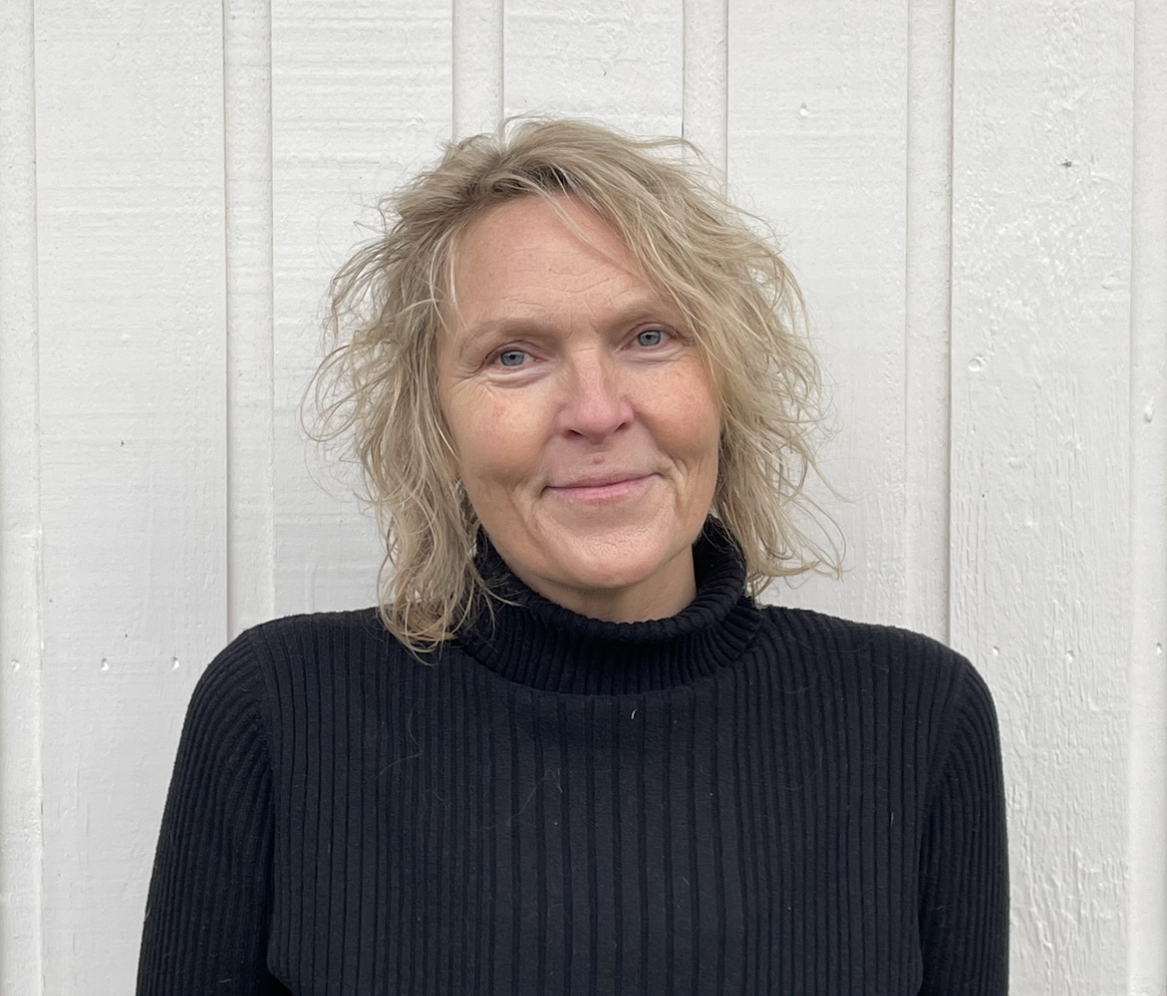
Igen i år er der arrangeret et meet-and-greet for universiteternes Front Office, Back Office ved DeiC og de tjenestespecifikke Back Offices (HPC-anlæg og datamanagement-tjenester). Emnet for dette års meet-and-greet vil være drøftelse af og forslag til fokusområder for det fælles samarbejde i 2025. Derudover vil der være mulighed for videndeling og erfaringsudveksling.
Alle, der gerne vil vide mere om Front Office/Back Office samarbejdet, er også velkomne.
18:00
Reception i foyer med forfriskninger
18:45
Underholdningsshow i Sal A
19:30
Middag i restaurant Trompetéren
Konferencedag 2
07:30
Morgenløbetur til de friske
Spor 1
I år sørger vi også for lidt fysisk adspredelse. Derfor inviterer vi alle, der har lyst til at starte konferencens 2. dag i flotte omgivelser, med til en morgenløbetur. DeiCs egen hyggemotionist, Dennis Lange Wollbrink, vil føre an og sørge for, at alle kommer sikkert hjem igen i god tid, inden programmet starter. Vi mødes foran hotellets reception kl. 7:30, og så varmer vi op og løber sammen. Vi er tilbage ved receptionen kl. 8:15.
Morgenløbetur til de friske
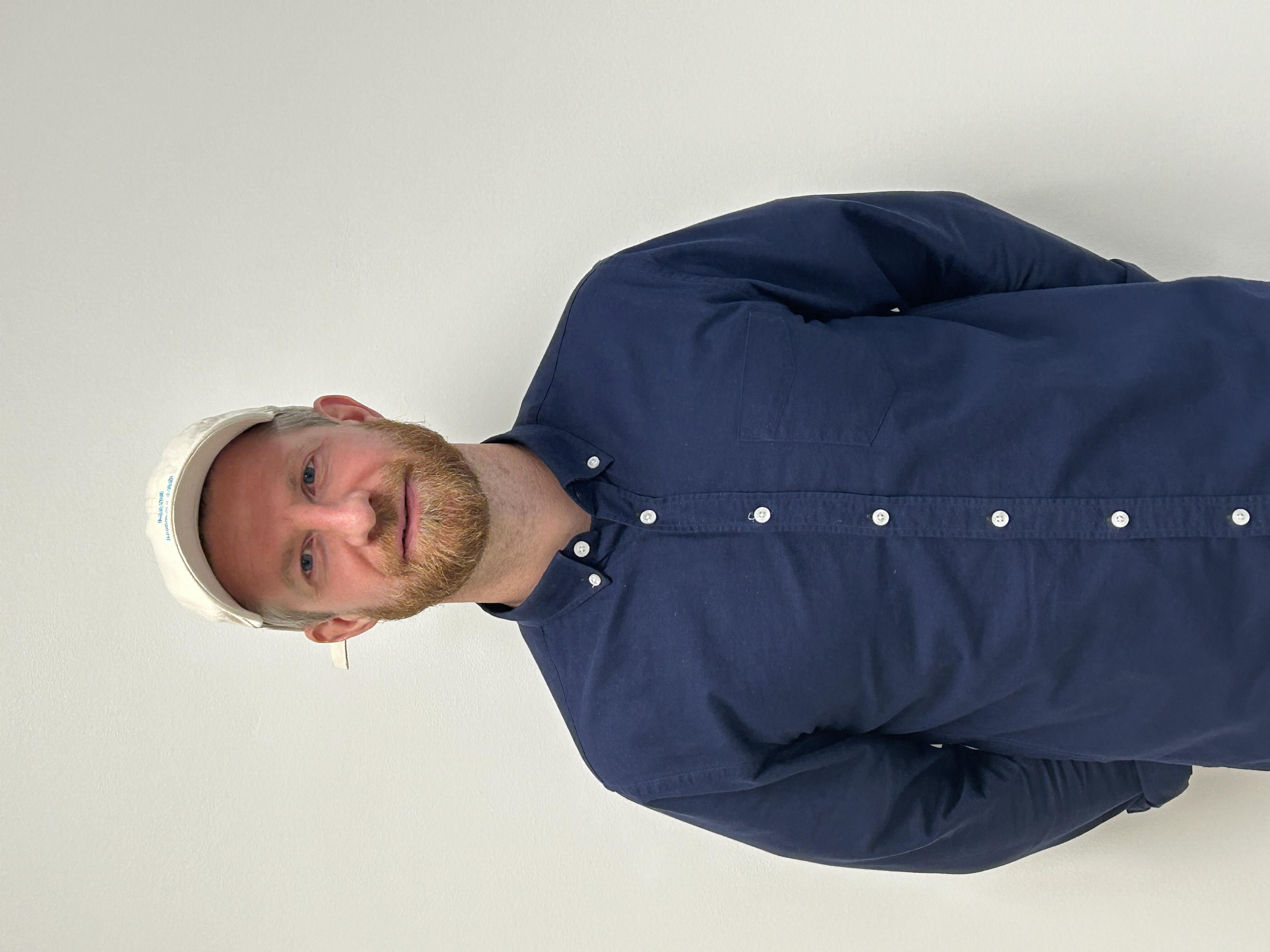
I år sørger vi også for lidt fysisk adspredelse. Derfor inviterer vi alle der har lyst til at starte konferencens 2. dag med til en morgenløbetur i de flotte omgivelser. DeiCs egen hyggemotionist, Dennis Lange Wollbrink, vil føre an og sørge for at alle kommer sikkert hjem igen i god tid inden programmet starter. Vi mødes foran hotellets reception kl. 7.30 og så varmer vi op og løber sammen. Vi er tilbage ved receptionen 8.15.
09:00
Blok overskrift
Sal A
Reproducerbarhed
En model til fremme for reproducerbar forskningspraksis på forskningsinstitutioner
Anna Mette Morthorst, DeiC
En model til fremme for reproducerbar forskningspraksis på forskningsinstitutioner
I det akademiske landskab er det altafgørende at arbejde på at sikre reproducerbarheden af forskningsresultater for at opretholde den videnskabelige integritet. Det handler om transparens og mulighed for andre at efterprøve forskningsresultater, som er en del af visionen for åben videnskab.
Universiteter og andre forskningsinstitutioner arbejder kontinuerligt med dette, men hvordan kan man skabe et overblik over sine indsatser? finde inspiration til relevante handlemuligheder? og igangsætte en dialog mellem forskere, ledelse og støttepersonale?
Denne præsentation vil forsøge at give nogle svar ved at præsentere resultaterne af rapporten "Approaches to scaling up reproducibility in research organizations", udgivet af Knowledge Exchange, med DeiC som partner. Rapporten er skrevet af Michelle Barker og Neil Chung Hong i samarbejde med Knowledge Exchange projektgruppen fair data and software supporting reproducible research. Fra dansk side har Birte Christensen Dalsgaard, Karsten Kryger Hansen og Anna Mette Morthorst bidraget til projektet
Anna Mette Morthorst
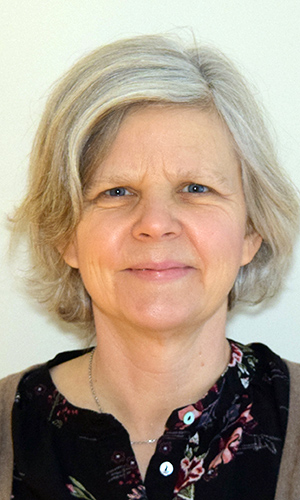
Anna Mette Morthorst arbejder for DeiC som data management-konsulent. Hendes primære rolle er at være dansk koordinator af Knowledge Exchange på vegne af DeiC. Knowledge Exchange er et Europæisk samarbejde med seks nationale organisationer, der arbejder for at fremme digitale infrastrukturer og services for forskning og videregående uddannelser, med særligt fokus på Open Science. Hun beskæftiger sig med emner som meritering, fremtidige muligheder for forskningspublicering, reproducerbar forskning, samt FAIR data og software, senest i projekterne Alternative Publishing Platforms og Fair data and software supporting reproducible research.
Sal B
Kvanteinfrastruktur - Forsvar og Sikkerhed
Forsvarets fokus på kvanteområdet
Waseim Alfred, Chefkonsulent, Forsvarsministeriets Materiel og Indkøbsstyrelse, Værnsfælles Videnscenter
Forsvarets fokus på og arbejde med en kvanteområdet - der i NATO-sammenhæng omtaltes som en ny kritisk teknologi.
Sal C
Data Management
TBA
Sal E
Netværk og Tjenester
Installer, konfigurer og kør din egen “AI” - på din bærbar
Nicolai Brunvoll Ernst, DeiC
Installer, konfigurer og kør din egen “AI” - på din bærbar
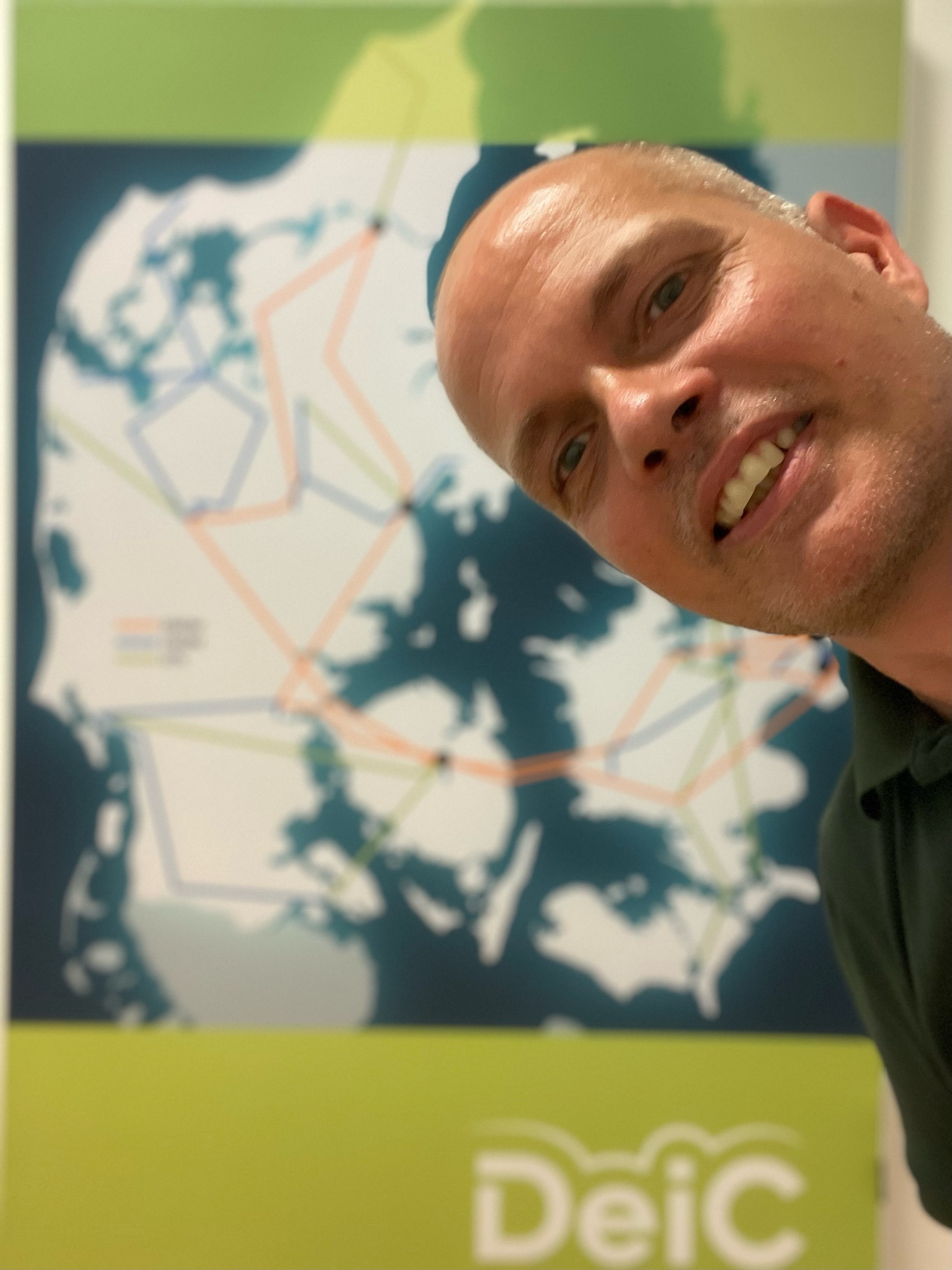
Et teknisk oplæg om at få din helt egen “AI” i luften på din egen hardware med små praktiske eksempler fra det virkelige liv, og hvor UNIX filosofien stadig lever højt. Det hele kommer til at foregå via et command-line interface live. Så hvis du har brug for en pause fra PowerPoint, så kig forbi - og tag din bærbar med! Så du også kan installere og konfigurer din helt egen “AI”.
Om Nicolai Brunvoll Ernst
IT-sikkersarkitekt, UNIX og firewall administrator samt udvikler med interesse indenfor sikkerhedhed, automatisering og netværk.
09:30
Blok overskrift
Sal A
Data Management
Reproducibility in Practice: Adoption and Challenges in the Social Sciences
Janis Zickfeld, Assistant Professor, Department of Management, and Integrative Centre for Business Psychology, AU
Reproducibility in Practice: Adoption and Challenges in the Social Sciences
Over the past decade, the social sciences have faced a “reproducibility crisis,” prompting shifts toward greater transparency. Despite increased availability of open data and shared materials, reproducibility rates remain low. This talk reviews progress, challenges in making research reproducible, and issues in replicating others’ work. Key barriers include inconsistent protocols, technological limitations, misaligned incentives, and privacy concerns. Promising initiatives and the role of educational programs in enhancing reproducibility will also be discussed.
About Janis Zickfeld
Janis Zickfeld is an Assistant Professor at the Department of Management, and Integrative Centre for Business Psychology at Aarhus University. His research focuses on the interplay of morality, emotions, and social behavior. He is also interested in open science practices and has been an ambassador for the Centre for Open Science, organizing research seminars on open science and being responsible for courses on reproducibility and replicability in the social sciences.
Sal B
Danoffice
AMD Turin Platform – performance results and server platform and CPU selection guidance
Karl Larsson, Technical Advisor, AMD
About this session
This technical session will explore the innovative architecture of AMD's upcoming Turin processor, engineered to meet the demands of next-generation data centers and HPC environments. We will examine Turin's massive core scalability, advanced support for DDR5, and PCIe Gen 5.0, enabling higher memory bandwidth and I/O throughput. Special focus will be given to its energy-efficient design, featuring enhanced power management as well as its optimized architecture for AI/ML workloads, leveraging next-gen SIMD and AVX-512 instructions. Attendees will gain insights into how Turin pushes the boundaries of performance, scalability, and workload acceleration in modern computing
Sal C
Data Management
TBA
Sal E
Netværk og Tjenester
eduVPN at the Leibniz-Supercomputing Centre. How we migrated and what we learnt in two years of operation
Markus Meschederu, BAdW
eduVPN Operation at the Leibniz-Supercomputing Centre. How we migrated and what we learnt in two years of operation
The Leibniz-Supercomputing Centre (Leibniz Rechenzentrum, LRZ) is the computing center of both Munich Universities of Excellence: Ludwig-Maximilians University and Technical University Munich and is a National Supercomputing Centre. The LRZ operates the Munich Scientific Network (MWN) for all universities and other research institutions in the greater area of Munich. MWN connects more than 130,000 users and more than 300,000 devices.
The structure of LRZ is different compared to many universities as we do provide services for several universities in the Munich area instead of only one university. The big ones, counted in VPN users, are:
- Technical University of Munich tum.de TUM
- Ludwig Maximilian University of Munich lmu.de LMU
- HM Hochschule München University Of Applied Sciences Munich hm.edu
- Weihenstephan-Triesdorf University of Applied hswt.de and smaller ones.
In this presentation we would like to point out several aspects of eduVPN:
- Migration from the old established VPN service to eduVPN
- Setting up eduVPN
- Operating eduVPN
Migration from old VPN service to eduVPN
During the migration process we had to decide how to migrate from an existing VPN service with years of operational experience to a new service with hardly any operational experience. From end users’ view the transition should be as smooth as possible and they should migrate as voluntarily as possible.
A short Introduction into eduVPN with its features will be given.
Setting up eduVPN
eduVPN has a flexible design to accommodate different use cases. We show what setup we chose for our servers, which operating system and which platform was the most appropriate. There were different authentication methods to choose from, each one with pros and cons.
Deploying, monitoring the VPN services and user management will be explained.
Operating eduVPN service
Starting eduVPN three years ago we gained operating experience. We give an overview of the typical challenges and decisions of daily operation.
Resume
Switching to eduVPN proved to be the right decision. This VPN service covers the requirements for secure access to internal university resources. End user support did not show any unsolvable problems. The architecture of eduVPN makes it easy to add additional resources. The support of the eduVPN developer team leads to quick and satisfying problem solutions.
About Markus Meschederu
Working at the Leibniz-Supercomputing Centre in Munich since the year 2000 in network operations covering backbone operation and vpn.
10:00
Blok overskrift
Sal A
Data Management og HPC
Reproducerbar Forskning
Sal B
HPC
AI/ML og GDPR
Susanne Ketill Groth, DPO, DKCERT
AI/ML og GDPR
Vi står over for en spændende, men udfordrende æra, hvor mulighederne for at anvende kunstig intelligens (AI) kolliderer med kravet om databeskyttelse. Oplægget vil fokusere på, hvordan databeskyttelsesforordningen og AI-forordningen vil påvirke anvendelsesmulighederne af AI/ML på HPC-anlæg.
Sal C
Data Management
Den nationale FAIR strategis relation til EOSC – European Open Science Cloud
Anne Sofie Fink, DeiC
Den nationale FAIR strategis relation til EOSC – European Open Science Cloud
God forskning er af sagens natur international, og derfor er god forskningsdatamanagement og løsningerne hertil også internationale, da det i sidste ende skal gavne forskernes samarbejde på tværs af grænser. Det internationale samarbejde og vidensdeling om udviklingen og retningen indenfor forskningsdatamanagement og FAIR principperne foregår langt hen ad vejen i regi af EOSC (European Open Science Cloud). I dette oplæg holdes FAIR strategien op imod udviklingen i EOSC både generelt og specifikt med de projekter, DeiC deltager i (FAIR-IMPACT, SKILLS4EOSC, EOSC Entrust m.m).
Om Anne Sofie Fink
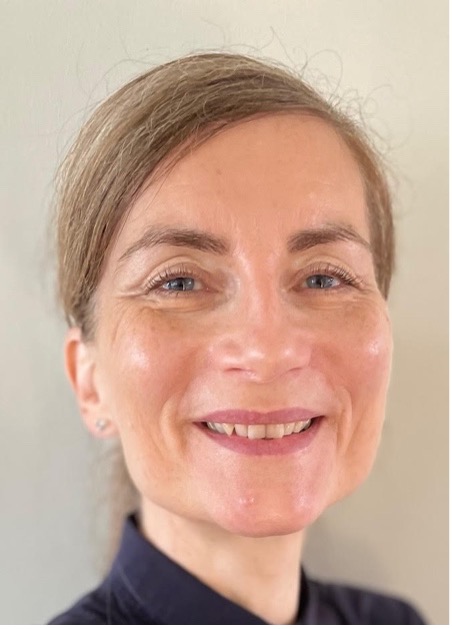
Som leder af Data Management Teamet i DeiC har jeg fokus på, hvordan data og metadata lettere kan deles og genbruges i henhold til FAIR principperne - nationalt og internationalt. Der er et tæt samspil mellem datadeling/-genbrug og de services, der findes eller bør udvikles hertil. Jeg lægger i den sammenhæng særlig vægt på samarbejde og netværk nationalt og internationalt for at sikre, at vi i DeiCs Data Management Team har indsigt i forskernes behov, og hvordan vi kan imødekomme dem i arbejdet med data management-støtte og efterlevelse af FAIR-principperne. Jeg har tidligere arbejdet som forsker inden for samfundsvidenskabelig metode.
Sal E
TDC Erhverv
Sikker kommunikation på tværs af danske og europæiske universiteter med dansk hardwarekrypteret informationsdeling baseret på Microsoft 365
Rasmus Knappe, CTO, Microsoft Danmark, og Anders Christensen, Senior Director, TDC Erhverv
Sikker kommunikation på tværs af danske og europæiske universiteter med dansk hardware krypteret informationsdeling baseret på Microsoft 365
Truslen mod universitetssektoren er som bekendt høj, og trusselsbilledet stiger i kompleksitet. Parallelt hermed øges presset for digitalisering og den konkurrenceevne, der følger med. Ved at indarbejde distribueret FIPS 140-3 hardware-kryptering ind i den mest moderne samarbejdsplatform på markedet, Microsoft 365, åbner TDC Erhverv og Microsoft op for, at fortrolige og følsomme data potentielt kan deles både internt og eksternt uden bekymring for sikkerheden. Ved at gøre brug af et hardware-krypteret distribueret kommunikationsnetværk skabes et hermetisk lukket netværk til brug for kommunikation og informationsdeling universiteterne imellem. Ikke nødvendigvis kun i Danmark, men også i Europa. Samtidigt er det nemt og foregår automatisk for forskerne og andre udvalgte brugergrupper.
Om Rasmus Knappe.
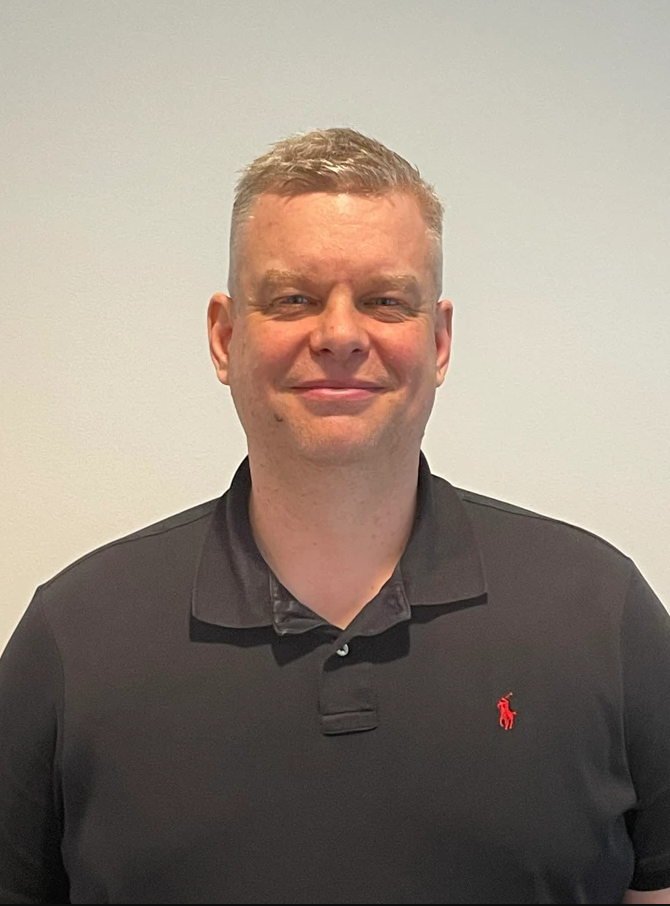
Teknologidirektør i Microsoft Denmark og arbejder til dagligt med danske virksomheder med særligt fokus på teknologiunderstøttet innovation, herunder kunstig intelligens, til gavn for samfundet, kunder og medarbejdere. Har 20+ års erfaring i IT-branchen og en forskningsmæssig baggrund med en ph.d. i datalogi.
Om Anders Christensen
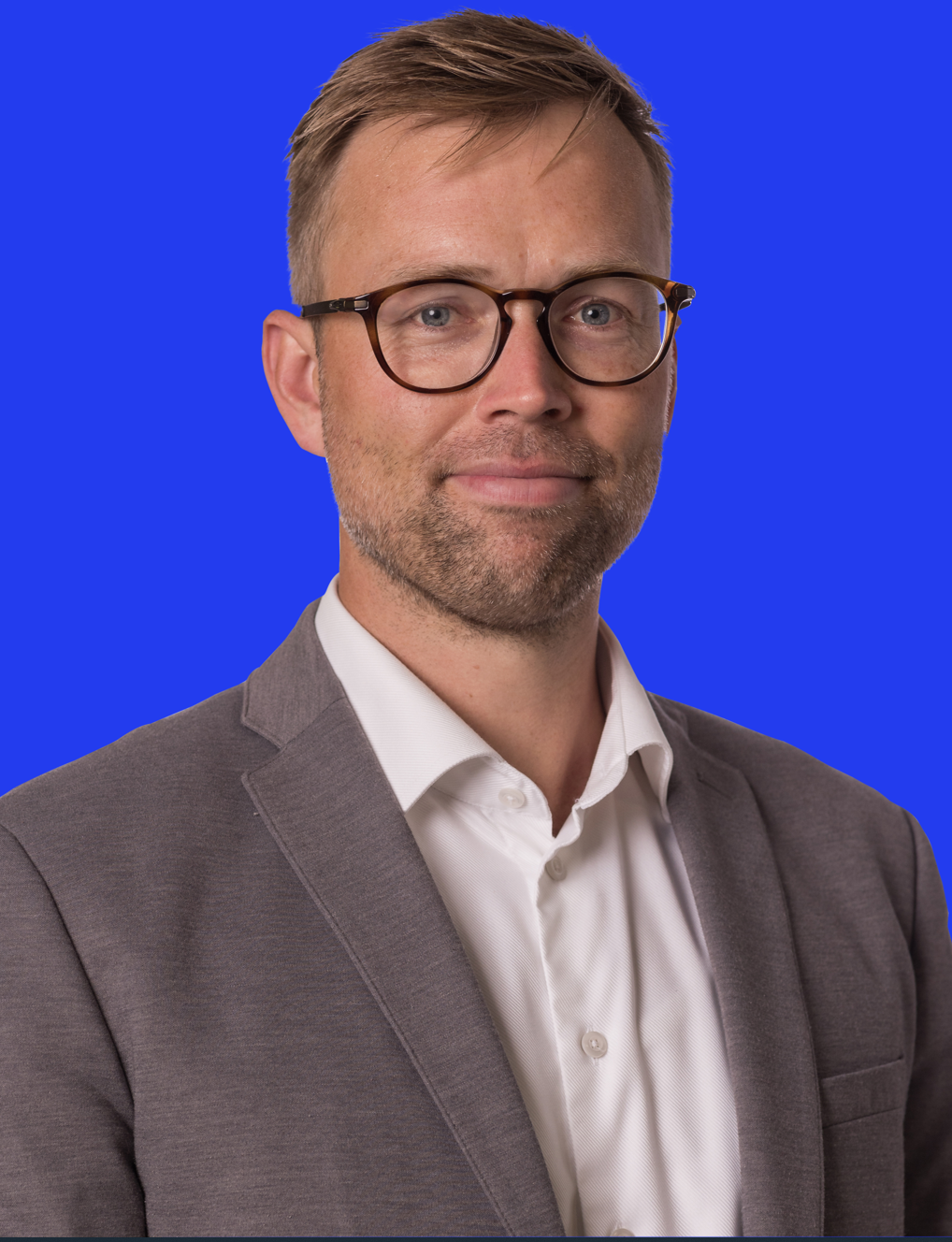
Anders er overordnet ansvarlig for TDC Erhverv CloudKey®-platformen, hvor han til daglig arbejder med organisationer i Danmark og Europa om at opnå højere kontrol med data, når vi arbejder i Public Cloud.
10:30
Pause
11:00
Blok overskrift
Sal A
HPC and Sensitive Data
Part 1: Development of a Unified Integration Solution Between Denmark's Data Window and HPC Facilities
Michael Specht, DST
Part 1: Development of a Unified Integration Solution Between Denmark's Data Window and HPC Facilities
For many years, Statistics Denmark has had a system in which researchers within an IT environment at Statistics Denmark could access and combine their own data with the data held by Statistics Denmark. However, there has been an increasing desire to use HPC facilities to work with Statistics Denmark’s data. Consequently, Statistics Denmark has collaborated with DeiC to develop a unified integration solution that can be used by researchers and other users of Denmark's Data Window in conjunction with existing HPC facilities. The project began in the spring of 2023 and is expected to be completed by the fall of 2024. This presentation will cover the prerequisites that Statistics Denmark had for participating in the project. Additionally, the process the project has undergone to reach a solution will be discussed, including a demonstration of the solution. Finally, the opportunities the solution offers now and in the future will be described.
About Michael Specht
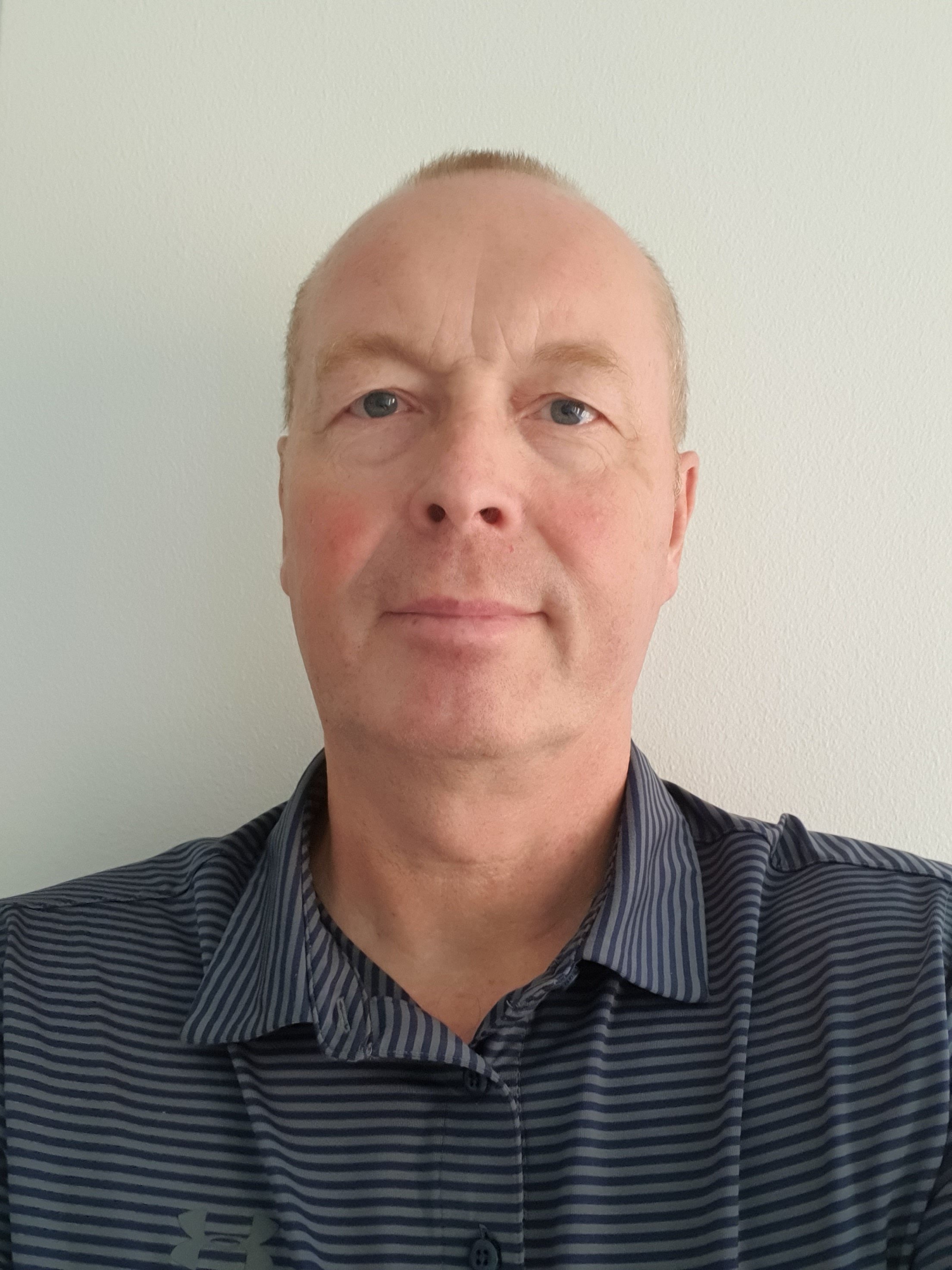
Michael Specht is a chief adviser at Statistics Denmark, where, as a project manager, he has been involved in leading several major IT transformation projects. Michael's main focus in these projects has been to develop high-quality technical solutions that make users' daily tasks easier.
Sal B
Kvanteinfrastruktur - Forsvar og Sikkerhed
Nationalt Forsvarsteknologisk Centers perpektiver på kvanteteknologi
Lars Bo Larsen, Direktør, Nationalt Forsvarsteknologisk Center
Nationalt Forsvarsteknologisk Centers perpektiver på kvanteteknologi
Danmark står over for en verden præget af intens international konkurrence, hvor vores rolle som en stærk alliancepartner i NATO og EU er afgørende. For at leve op til vores forpligtelser i disse alliancer skal vi styrke vores teknologiske kapaciteter, så vi kan bidrage til fælles sikkerhed og stabilitet. Kvanteteknologi spiller en central rolle i fremtidens forsvar, og investeringer i kvantesensorer og kvantekryptering kan udgøre et væsentligt bidrag til vores partnere. Kvantesensorer har stort potentiale, herunder til anvendelse i overvågning og præcisionsmålinger. I en forsvarssammenhæng kan disse sensorer forbedre navigation uden GPS og muliggøre præcis detektion af fysiske ændringer i miljøet, hvilket kan være afgørende i militære operationer. Der er desuden et stort behov for internationalt samarbejde for at styrke forskningsmiljøer og udvikle førende kvanteteknologi. Dette inkluderer samarbejder inden for EU og partnerskaber med USA. En stærk vidensinfrastruktur er nødvendig for at facilitere militære anvendelser af kvanteteknologier, herunder sensorik og simuleringer, så teknologierne kan udnyttes effektivt i en forsvarskontekst. Samtidig skal vi nøje overveje samarbejdet med udenlandske aktører for at balancere risikoen for teknologioverførsel og afhængighed af udenlandsk teknologi. Vores mål er at sikre, at det danske forsvar er rustet til at imødegå fremtidens udfordringer og dermed forbliver en troværdig og stærk partner i NATO og EU.
Sal C
Netværk og Tjenester
Tele2 Samarbete: Navigating Security and Collaboration: The Case for Matrix-Based Solutions in Swedish Public Sector
Peter Klein, Project Manager, Tele2
Tele2 Samarbete: Navigating Security and Collaboration: The Case for Matrix-Based Solutions in Swedish Public Sector
This presentation will explore the emerging market for commercial Matrix-based solutions tailored to Sweden's public sector. With strict regulations necessitating EU-based cloud services and on-premise solutions for security and resilience, Swedish organizations are seeking robust and compliant collaboration platforms. The discussion will highlight the significance of federation with a single protocol and the value of open-source development in meeting these demands. Additionally, we will examine how Tele2's new commercial offering, "Tele2 Samarbete," integrates with existing systems to provide a comprehensive collaboration solution, including features like compatibility with legacy SIP systems, digital whiteboards, and other customer integrations, designed to meet the specific needs of Swedish organizations.
About Peter Klein
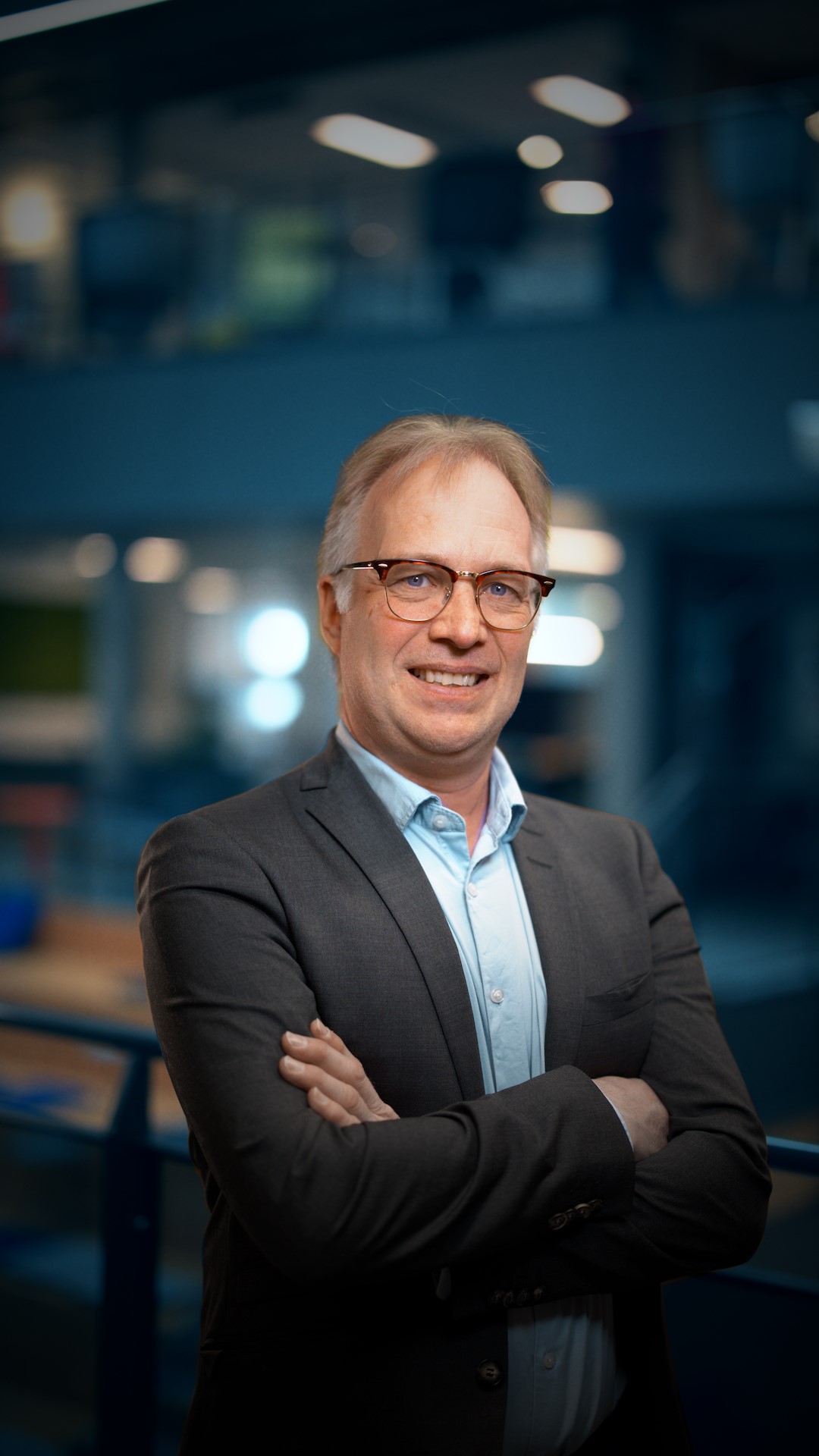
I am a Product Manager at Tele2, where I lead the company's Collaboration offering, focusing on developing innovative solutions for the public sector. With a technical background as well as my commercial experience, I led the inception, development and launch of Tele2 Samarbete. My passion lies in understanding and meeting customer needs, ensuring that our communication solutions are secure, compliant, and of the highest quality. When I'm not working, I love spending time with my family, coaching football, and playing bass in a blues band, all of which allow me to balance my professional life with activities that inspire my creativity and teamwork.
Sal E
Sikkerhed og Netværk
Opdagelse og analyse af trusler ud fra netflowdata - nye muligheder i Forskningsnettet
Niels Jensen, DeiC, og Ergys Kajo, DKCERT
Opdagelse og analyse af trusler ud fra netflowdata - nye muligheder i Forskningsnettet
Dagligt angribes infrastruktur og servere på Forskningsnettet (FN). For de ansvarlige for driften kan det være svært at vurdere, hvilken trafik i nettet der er legitim brug, og hvilken der stammer fra angreb eller endda kompromitterede systemer på eget net. Det er også langsomt og besværligt at skaffe overblik bagudrettet, når der er sket hændelser, der kræver nærmere analyse. Derfor samles netflowdata fra Forskningsnettets routere nu i en fælles database. Det giver mulighed for bl.a. hurtig dataanalyse tre måneder bagud i tid, tæt på realtids-analyse af friske data og automatisk alarmering ud fra trusselsmønstre hentet i den fælles MISP-database. Vi vil give et overblik over, hvordan systemet opsamler og opbevarer data, og vise eksempler på mulige søgninger, og hvor hurtigt de kan gennemføres. Medbring meget gerne dine idéer til anvendelse af databasen, så vi kan få en dialog om, hvordan den udnyttes bedst.
Om Niels Jensen
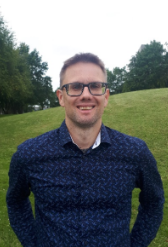
Niels Jensen har en kandidatuddannelse i fysik og arbejder for DeiC.
Om Ergys Kajo
Ergys Kajo har en kandidatuddannelse i computersikkerhed fra DTU. Ergys har arbejdet hos DKCERT som cyber- og informationssikkerhedskonsulent siden april 2022, og fra januar 2023 er han en del af CTI-teamet hos GÉANT. Tidligere har Ergys arbejdet som netværksspecialist for Fastweb Italia.
11:30
Blok overskrift
Sal A
HPC and Sensitive Data
Part 2: Development of a Unified Integration Solution Between Denmark's Data Window and HPC Facilities
Michael Specht, DST
Part 2: Development of a Unified Integration Solution Between Denmark's Data Window and HPC Facilities
For many years, Statistics Denmark has had a system in which researchers within an IT environment at Statistics Denmark could access and combine their own data with the data held by Statistics Denmark. However, there has been an increasing desire to use HPC facilities to work with Statistics Denmark’s data. Consequently, Statistics Denmark has collaborated with DeiC to develop a unified integration solution that can be used by researchers and other users of Denmark's Data Window in conjunction with existing HPC facilities. The project began in the spring of 2023 and is expected to be completed by the fall of 2024. This presentation will cover the prerequisites that Statistics Denmark had for participating in the project. Additionally, the process the project has undergone to reach a solution will be discussed, including a demonstration of the solution. Finally, the opportunities the solution offers now and in the future will be described.
About Michael Specht

Michael Specht is a chief adviser at Statistics Denmark, where, as a project manager, he has been involved in leading several major IT transformation projects. Michael's main focus in these projects has been to develop high-quality technical solutions that make users' daily tasks easier.
Sal B
Kvanteinfrastruktur - Forsvar og Sikkerhed
Forsvarets Efterrerningstjenestes syn og fokus på kvanteområdet
Politiets Efterretningstjeneste (FE)
Sal C
Netværk og Tjenester
Matrix as a decentralised communication platform at higher education institutions in Germany
Lars Kiesow, Osnabrück University
Matrix as a decentralised communication platform at higher education institutions in Germany
We have been running Matrix at Osnabrück University for over five years. In this session, we talk about how this works, lessons learned, the problems we face, and how the Matrix landscape evolved at universities in Germany.
About Lars Kiesow
Lars Kiesow is the deputy head of educational technologies at Osnabrück University. he has been an active developer in open source projects for in the area of higher education (Opencast, BigBlueButton, …) for over 15 years. He deployed software projects at small schools as well as national research networks.
Sal E
Sikkerhed
IOC (Indicator of Compromise) sharing, ingesting and lifetime considerations
Panagiotis Matamis, DTU
DKCERT II: IOC (Indicator of Compromise) sharing, ingesting and lifetime considerations
This talk will touch upon Cyber Treat Intelligence (CTI) in general and MISP (an open source threat intelligence platform). Enabling feeds will provide you with lots of Indicators Of Compromise (IOCs) but are they all relevant? What is the lifetime of an IOC? What ways does MISP provide that reduce false positives? How do you clean up your IOCs? Connecting MISP to Microsoft Defender ATP or Sentinel is not that difficult anymore. Should you do it? Both MISP and Microsoft provide APIs that enable extracting and importing data. What are some interesting examples and use cases? A lot of questions, but hopefully we will get to answer some of them.
About Panagiotis Matamis
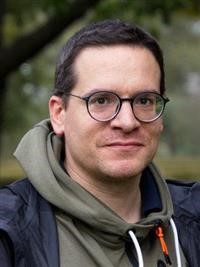
Panagiotis Matamis is a security enthousiast who visited Denmark for studies, acquired a master degree in computer security and is part of DKCERT/DeiC for almost a year now.
12:00
Blok overskrift
Sal A
HPC and Sensitive Data
TBA
Sal B
Kvanteinfrastruktur - Forsvar og Sikkerhed
Truslen mod dansk kvanteteknologi v. PET
Politiets Efterretningstjeneste (PET)
Sal C
Netværk og Tjenester
From Fringe to Core: The Story of Moodle at Aalborg University
Christian Wahl, System Administrator, IT Services, AAU, and Lars S. Anderson, Application Manager, IT Services, AAU
From Fringe to Core: The Story of Moodle at Aalborg University
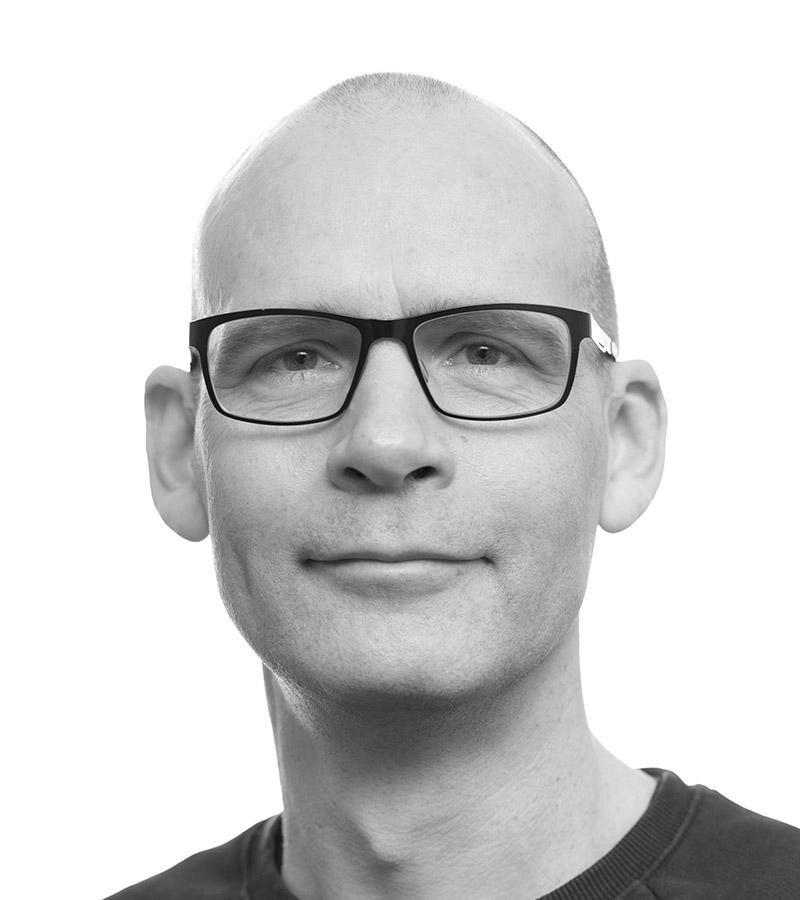
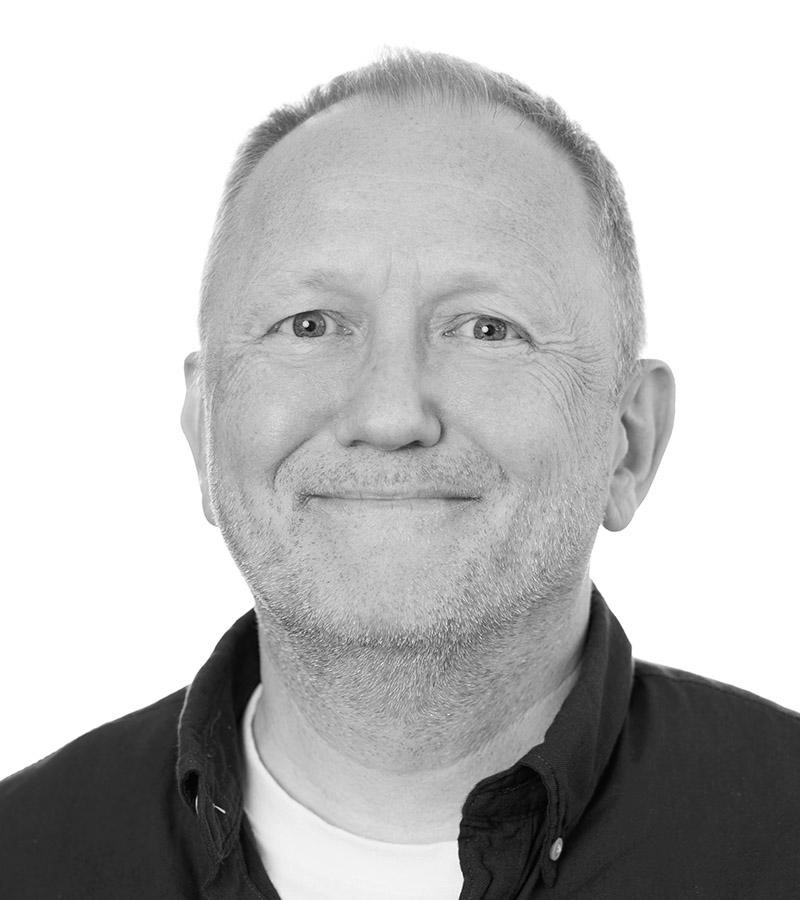
In this talk, we will explore the journey of Aalborg University’s adoption and use of Moodle, the open-source Learning Management System (LMS) that has become an integral part of our educational ecosystem. We will begin with a historical overview, with the use of Moodle at the Faculty of Social Sciences, and how – eventually – Moodle ended up being integrated in more or less all educations across the university. Moving beyond its organic growth, we will discuss the governance challenges posed by Moodle’s open-source nature, including the difficulties of clear ownership and visibility in the traditional budgeting processes. Finally, we will present and discuss a technical overview, sharing key statistics on the current infrastructure, and the ongoing efforts to develop and scale the system. Join us as we uncover how Moodle went from localized use to a foundational element in our university's digital learning environment.
Sal E
Sikkerhed
Interne og eksterne scanninger som centrale dele af sikkerheden
Henrik Jensen, DKCERT
Interne og eksterne scanninger som centrale dele af sikkerheden
Dagligt ser vi i medierne, at virksomheder og institutioner i Danmark og globalt bliver kompromitteret af angreb af forskel art. Det gælder også de danske universiteter. Meget ofte udnytter hackere sårbarheder i de enheder, som institutionen stiller til rådighed for studerende, gæster, medarbejdere m.v. Der er en væsentlig opgave i at holde den eksterne angrebsflade sikkerhedsmæssig opdateret, og her er DKCERTs sårbarhedsscanninger et vigtigt redskab.
DKCERT kan derudover udføre interne skanninger ude på institutionerne. Disse skanninger er erfaringsmæssigt et effektivt værktøj til at afdække sårbarheder og skygge IT-i institutionens indre infrastruktur. Skanningerne kan bl.a. foretages således, at vi kan afdække, hvilke sårbarheder der er synlige for brugere med forskellige rettigheder, som eksempelvis studerende, ansatte, administratorer, konsulenter m.v.
Kom og få en introduktion til, hvordan DKCERT konfigurerer og afrapporterer skanninger, samt hvilke Plugins der benyttes ved skanninger. Det er også muligt at spørge ind til, hvordan DKCERT udfører interne skanninger ude på institutionerne. Sårbarhedsskanninger fra DKCERT er i standardopsætningen behæftet med få ”falske positiver”.
Om Nessus
Nessus er de-facto standardværktøjet til at foretage sårbarhedsskanninger og er meget mere end blot en ”out of the box”-skanningsenhed. Nessus kan sammensættes præcist ud fra institutionens ønsker, hvorved ”falske positiver” helt kan elimineres fra skanninger, og mere præcise sårbarhedsskanninger kan sammensættes og skabe værdi for institutionen. Nessus foretager sårbarhedsskanninger for hele topdomæner med tilhørende underdomæner og vil afdække institutionens ”attack surface”. Vær et skridt foran hackere med indsigt i sårbarheder og sikkerhedssvagheder på tværs af institutionens eksponerede angrebsflader. DKCERT anvender Tenable Nessus Expert, som giver den mest omfattende løsning til vurdering af sårbarheder i interne og internet-vendte enheder, cloud-infrastruktur og webapplikationer.
Se mere på https://www.tenable.com/data-sheets/tenable-vulnerability-management
About Henrik Jensen
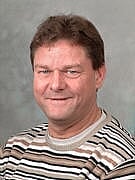
Henrik Jensen har mere end 40 års praktisk erfaring fra forskellige områder inden for IT. Henrik har arbejdet hos DKCERT som cyber- og informationssikkerhedskonsulent siden januar 2021. Tidligere har Henrik bl.a. arbejdet som CISO i diverse private firmaer samt været sikkerhedsansvarlig på RUC. I det daglige varetager Henrik skanninger af institutioner, både eksterne og interne skanninger, varetager abuse sager og generelle sager via mail og andre ad-hoc opgaver hos DKCERT.
12:30
Frokost
13:30
Blok overskrift
Sal A
Netværk og Tjenester
Digital suverænitet – hvad betyder de europæiske visioner om selvbestemmelse?
Rebecca Adler-Nissen, KU
Digital suverænitet – hvad betyder de europæiske visioner om selvbestemmelse?
I dag er digital suverænitet en ledetråd for EU’s digitale logvining og initiativer. Men der er ikke enighed om hvem eller hvad der skal være suveræn og hvordan. Handler suverænitet om sikkerhed, økonomi eller rettigheder? Rebecca Adler-Nissen vil på baggrund i den seneste forskning give et overblik over hvordan debatten om digital suverænitet har udviklet sig i Europa og resten af verden. Hun vil pege på de primære uenigheder og give sin analyse af hvor de forskellige positioner står i Europa og diskutere hvor det placerer Danmark.
Om Rebecca Adler-Nissen
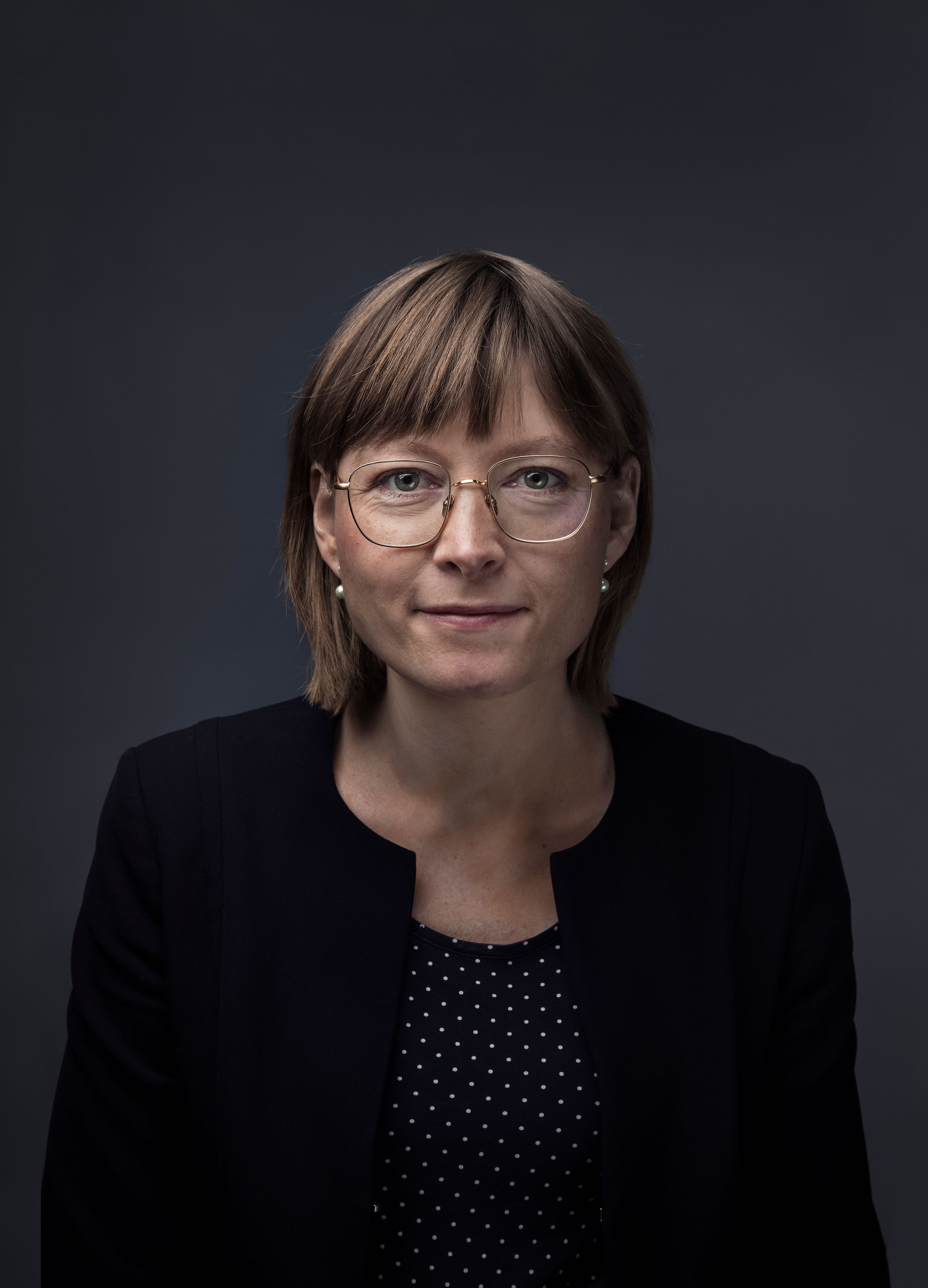
Rebecca Adler-Nissen er professor i statskundskab og Copenhagen Center for Social Data Science ved Københavns Universitet. Hun er medlem af regeringens ekspertgruppe om tech-giganter og chair for CPH Tech Policy Committee. Hun leder i øjeblikket en forskningsgruppe om Digital Suverænitet finansieret af VELUX-fonden.
Sal B
Data Management
Data som infrastruktur med Multigenerationsregistret
Jeppe Klok Due, Rigsarkivet
Data som infrastruktur med Multigenerationsregistret
CPR-registeret er grundlaget for offentlig administration af borgerne, og som utilsigtet effekt er det også blevet den vigtigste infrastruktur for forskning i alt, hvad der har med mennesker at gøre. For med CPR-registret kan forskere linke oplysninger om alle individers sundhed, sociale forhold og genetik sammen. CPR-registret har dog kun oplysninger om familieforhold for individer, der er født efter år 1960, så forskerne kan kun studere arvelige forhold ca. to generationer tilbage.
Med Multigenerationsregistret udvikler Rigsarkivet en helt ny forskningsinfrastruktur, der giver forskerne mulighed for at linke oplysninger om individerne sammen tre-fire generationer tilbage. Herved giver infrastrukturen mulighed for at linke oplysninger fra eksisterende registre og biobanker sammen gennem generationer. Med infrastrukturen vil man fx kunne studere arvelighed af sygdomme, der indtræffer sent i livet, såsom Alzheimers. I CPR-registeret kan man omvendt kun identificere slægtninge til dem, der lige har fået Alzheimers. Den nye infrastruktur kan integreres i andre forskningsinfrastrukturer som Den Nationale Biobank, hvorved der kan udvælges biologiske prøver fra individer, der er fætre, eller fra gamle biobanker med prøver fra individer, der døde før 1968.
Multigenerationsregistret bliver dannet ud fra digitalisering af kirkebøger, dødsattester m.v. Vi har bl.a. brugt DeiCs HPC-infrastruktur til at træne modeller til at kunne læse mio. af sider med ulæselig håndskrift.
Om Jeppe Klok Due
Jeppe Klok Due er cand.mag. i historie og informatik. Siden 2020 har han været projektleder for Multigenerationsregistret, hvor han er leder for en gruppe af dataspecialister og datascientists, der arbejder på at danne longitudinelle, historiske registerdata før de officielle statistikregistre. Aktuelt arbejdes der på datasæt vedr. kriminalitet, indkomst, fødsler og familierelationer. Han har tidligere været sekretariatsleder for Det Koordinerende Organ for Registerforskning.
Sal C
Kvanteteknologi
Overgang til Post-quantum cryptography (PQC)
Frederik Wedel-Heinen, Chief Cryptologist, Dencrypt
Overgang til Post-quantum cryptography (PQC)
Dencrypts kommunikationsløsning, Connex, leverer end-to-end krypterede kald og beskeder imellem dets brugere. Det er med udgangspunkt i denne løsning, at vi skal se på muligheden for at anvende post-quantum cryptography allerede i dag.
Siden NIST i 2016 begyndte at rette fokus mod at finde kvantesikre alternativer til RSA, Elliptic Curve Cryptography osv., har forskere og udviklere af netværksprotokoller, såsom TLS, været fokuserede på integrationen af disse alternativer. Det har ført til samarbejdet Open Quantum Safe, en organisation, der står for at strømline implementeringen af PQC-algoritmerne og integreringen ind i resten af teknologistakken.
Dencrypt har med udgangspunkt i dette arbejde kunne opdatere Connex til at bruge PQC. Det giver anledning til at kigge på yderligere forbedringer af sikkerheden og hvorledes systemerne skal distribueres.
Sal E
Sikkerhed
Part 1: Lessons from Ukraine: Cyberwarfare harms to civilan population
Oksana Kulyk, Associate Professor, ITU, and Jari Kickbusch, Research Communication Officer, ITU
Lessons from Ukraine: Cyberwarfare harms to civilan population
Cyberattacks from state actors have been an increasingly relevant threat during the recent years, aiming to destabilize political situation in a country or cause damage to its critical infrastructure. While a number of such attacks have been conducted targetting EU countries, including Denmark, cyberattacks from Russia have become an even more critical threat in Ukraine, where cyberattacks have been used as a way to supplement the traditional forms of warfare activities since Russia’s full-scale invasion in February 2022. In this talk, we will report on the results of our field trip to Ukraine in April 2024, researching on the impact of cyberattacks on civilian population. The talk will focus on harms and mitigation activities of cyberwarfare activities and will include insights from talking with both Ukrainian civilians and government officials.
About Oksana Kulyk
Oksana Kulyk is Associate Professor at IT University of Copenhagen in the Center of Information Security and Trust. Oksanas research interests include human and societal aspects of cybersecurity and privacy, including but not limited to election security, national security, transparency and trust.
About Jari Kickbusch
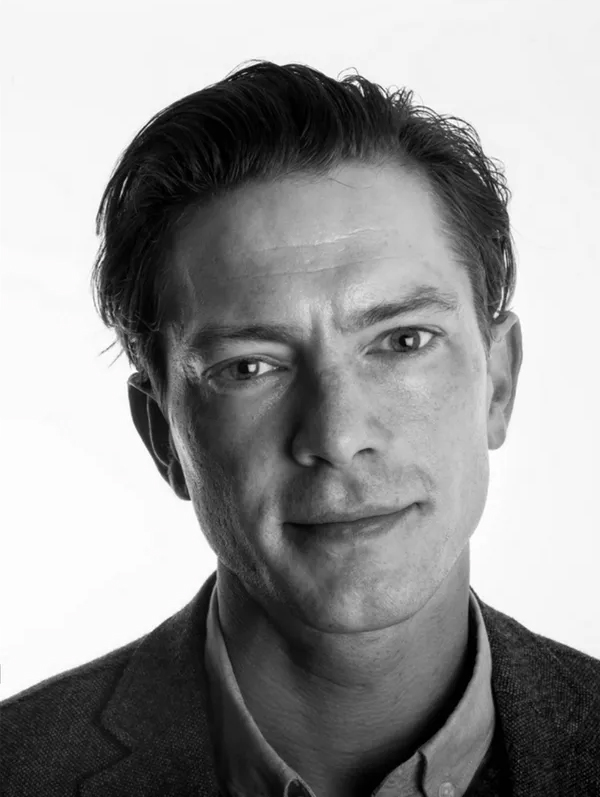
Jari Kickbusch is the Research Communication Officer at IT University of Copenhagen and is a member of the Center of Information Security and Trust. Jari has written for a large number of Danish and international media on cybersecurity-related issues. His current work is focused on cyberwarfare and how to use experiences from Ukraine to improve the resilience of the critical infrastructure in Denmark.
14:00
Blok overskrift
Sal A
Netværk og Tjenester
Digital sovereignty - A unicorn?
Daniel Melin, Safespring
Digital sovereignty - A unicorn?
There is a big push within Europe to become more sovereign regarding many areas and the full scale war in Ukraine has made many issues visible. At the same time, Europe's global market share in IT is shrinking. Does Europe stand a chance of ever getting digital sovereignty or is it just a unicorn?
About Daniel Melin
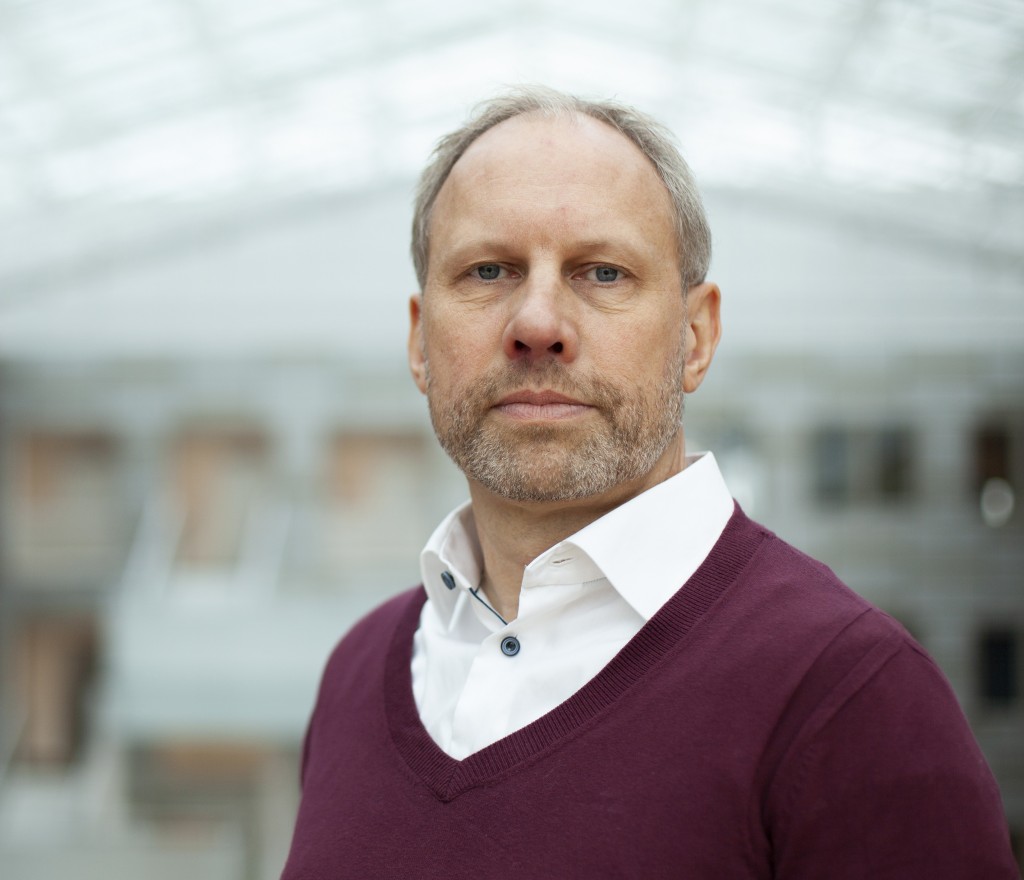
Daniel Melin has 40+ years of experience in IT and has for the last 15 years worked within the Swedish government. He is currently a business developer at the Swedish cloud services company Safespring. He has also been one of the louder voices in Sweden regarding digital sovereignty and the importance of only using cloud services when they are both legal and suitable to use.
Sal B
Data Management - Data as infrastructure
Grunddata på Datafordeleren er fællesoffentlig infrastruktur
Jesper Weng Haar, Klimadatastyrelsen
Grunddata på Datafordeleren er fællesoffentlig infrastruktur
Grunddata er fundament for Danmarks digitalisering og en vision om en sammenhængende datamodel på tværs af statslige registre, der sikrer, at fællesoffentlige data i høj kvalitet om adresser, ejendomme, geografi, personer og virksomheder er frit tilgængelige. Grunddata bliver distribueret på Datafordeleren i standardiserede formater, og det er muligt at kombinere og anvende data i systemer, så de offentlige sektorer bliver mere effektive ved at skabe bedre processer, fordi data kun er registreret i ét register og herefter bliver genbrugt i andre. Samtidig betyder den høje datakvalitet og den lette tilgængelighed på samme distributionskanal, at private aktører kan udvikle nye digitale løsninger og produkter for eksempel i forbindelse med klimaforandringerne. Hver måned henter offentlige og private anvendere grunddata med mere ca. 2 mia. kald til Datafordeleren. Grunddata er præmieret med Sammenhængsprisen på konferencen Offentlig Digitalisering 2023, som et unikt eksempel på en velfungerende fællesoffentlig digital infrastruktur.
Om Jesper Weng Haar
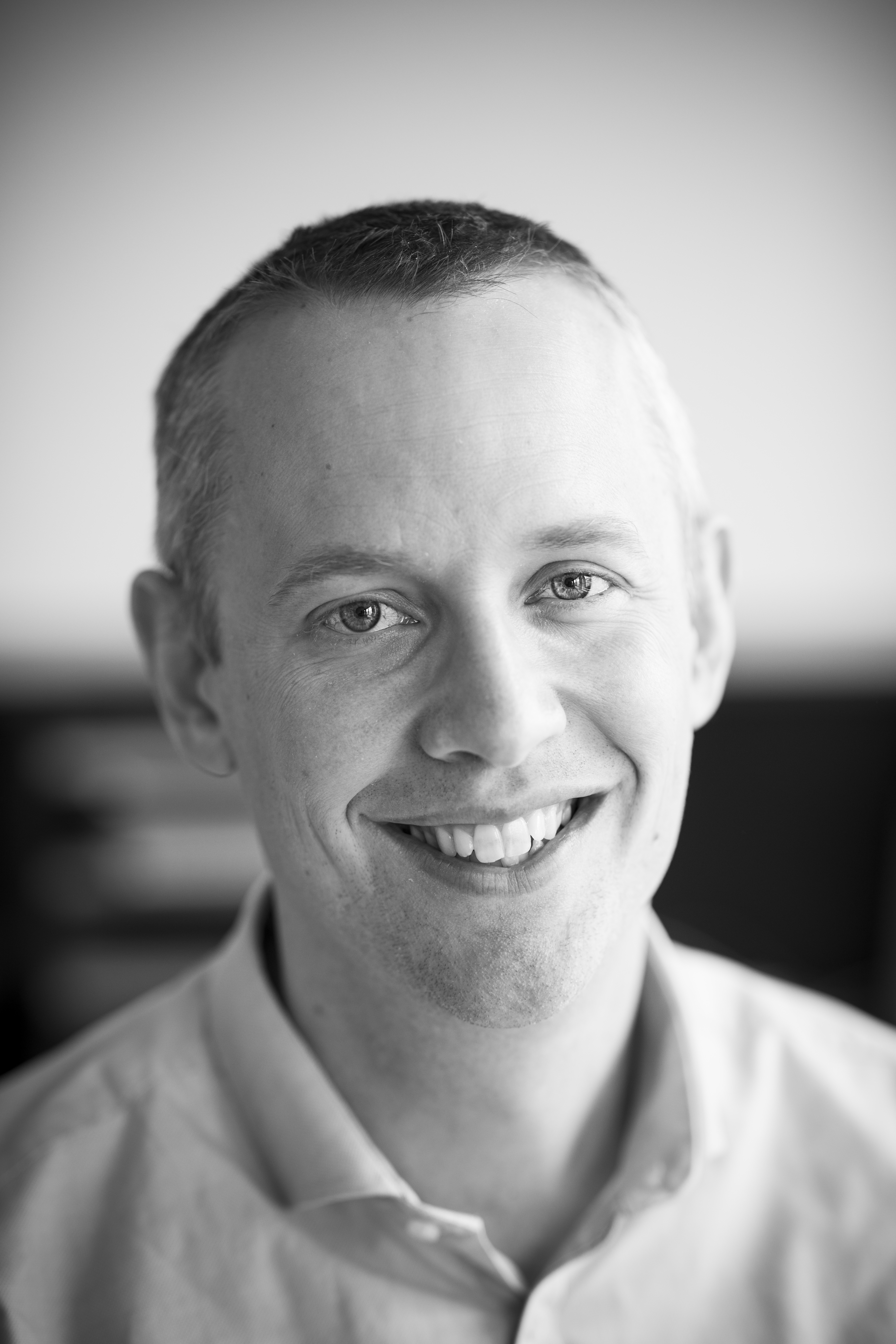
Jesper Weng Haar er kontorchef for Fællesoffentlig Datadistribution i Klimadatastyrelsen, der er myndighed for grunddata og har ansvaret for at drive og udvikle Datafordeleren.
Sal C
Kvanteteknologi
Algoritmer i praksis til industri, finansverdenen og life science
Frederik Sønderby Nathan, Niels Bohr Instituttet
Algoritmer i praksis til industri, finansverdenen og life science
Oplægget præsenterer et post doc-projekt finansieret via DeiC post doc-stipendier: LEAP: a fault-toleran quantum Metropolis algorithm implementable on near-term hardware. Oplægget kredser om, hvordan algoritmen i praksis tænkes brugt i industri, finansverdenen og life science.
Sal E
Sikkerhed
Part 2: Lessons from Ukraine: Cyberwarfare harms to civilan population
Oksana Kulyk, Associate Professor, ITU, and Jari Kickbusch, Research Communication Officer, ITU
Lessons from Ukraine: Cyberwarfare harms to civilan population
Cyberattacks from state actors have been an increasingly relevant threat during the recent years, aiming to destabilize political situation in a country or cause damage to its critical infrastructure. While a number of such attacks have been conducted targetting EU countries, including Denmark, cyberattacks from Russia have become an even more critical threat in Ukraine, where cyberattacks have been used as a way to supplement the traditional forms of warfare activities since Russia’s full-scale invasion in February 2022. In this talk, we will report on the results of our field trip to Ukraine in April 2024, researching on the impact of cyberattacks on civilian population. The talk will focus on harms and mitigation activities of cyberwarfare activities and will include insights from talking with both Ukrainian civilians and government officials.
About Oksana Kulyk
Oksana Kulyk is Associate Professor at IT University of Copenhagen in the Center of Information Security and Trust. Oksanas research interests include human and societal aspects of cybersecurity and privacy, including but not limited to election security, national security, transparency and trust.
About Jari Kickbusch
Jari Kickbusch is the Research Communication Officer at IT University of Copenhagen and is a member of the Center of Information Security and Trust. Jari has written for a large number of Danish and international media on cybersecurity-related issues. His current work is focused on cyberwarfare and how to use experiences from Ukraine to improve the resilience of the critical infrastructure in Denmark.
14:30
Blok overskrift
Sal A
Netværk og Tjenester
DTN testing and the world beyond Globus
Domenico Vicinanza, GÉANT
DTN testing and the world beyond Globus
Research projects quite often need to transfer large amounts of data to complete calculations and get results in a relatively short period of time. In the past, the physical shipping of hard disks full of data was frequently the fastest option. With the high bandwidths offered by research and education networks the transfer can be easily done using the appropriate tools. However the “normal” tools available such as commercial file storage services are unable to cope with the extreme data volumes used by these projects.
To improve data transfer between different sites, dedicated computer systems and architectures are used to improve performance. Data Transfer Nodes (DTN) are used to overcome this problem. DTNs are dedicated (usually Linux based) servers, with specific hi-end hardware components and dedicated transfer tools and are configured specifically for wide area data transfer.
One of the most common tools is Globus (https://www.globus.org/), a data transfer tool typically used for moving data between research centres, with web browser or command line interface.
This talk will present the GÉANT DTN Testing Facility, with an overview of its current status, the integration and interoperability with tools like ESNet DTN network (Globus-based), and explore possible future scenarios and tools.
About Domenico Vicinanza
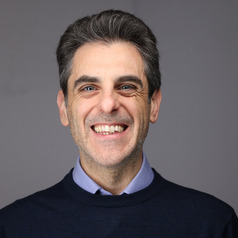
Dr Domenico Vicinanza is a Senior Research Engagement Manager at GÉANT. Having received his MSc and PhD degrees in physics, Domenico worked as a scientific associate at CERN for seven years. His research there mainly focused on the development of an innovative time-of-flight detector for one of the biggest High-Energy Physics experiments for the Large Hadron Collider in Geneva. The detector design was based on Multi-gap Resistive Plate Chambers (MRPC), reaching a sensitivity of 70 picoseconds (the highest ever reached) and its use in a large-scale experiment marked an important milestone for particle physics. Domenico is the DTN Testing Facility Service Manager, and he is an expert in long-haul data transfer and specialised network troubleshooting.
Domenico is also an Associate Professor of Intelligent Systems and Data Science at Anglia Ruskin University in Cambridge. His research interests include applications of non-linear dynamics in human movement science and sport science, data sonification and auditory display, distributed computing and network monitoring.
He has been involved in the application of grid technologies for science and the arts since the late 1990s, chairing the ASTRA (Ancient instrument Sound/Timbre Reconstruction Application) project for the reconstruction of musical instruments by means of computer models using the European Grid Infrastructure (EGI.eu).
Domenico's research has been featured on several international peer-reviewed magazines (Physics Letters B, Nuclear Instruments and Methods, European Physics Journal) and in interviews for (among the others): Financial Times, The Guardian, The Times, BBC, CNN, Discovery Channel, Discover magazine, New Scientist and Scientific American.
Sal B
Udvikling og brug af kvanteteknologi
Erfaringer og Principper for Hardware Integration af Kvantecomputere med HPC-systemer
Jonatan Kutchinsky, VP of Cryogenic Electronics, Quantum Machines
Sal C
Aflyst
Kvantecomputeren i praksis
Teorien bag kvantecomputerens potentiale er blevet arbejdet på i årtier, og de seneste år er vi begyndt at se de første prototyper på, hvad man for alvor kan kalde en kommercielt anvendelig og tilgængelig kvantecomputer. Nu arbejdes der på højtryk for at forene de to, og nå den sidste brik i puslespillet: en konkret praktisk anvendelse af de tilgængelige maskiner til at nå det teoretisk forudsete potentiale.
For at nå dette mål må man forene konkrete problemstillinger fra relevante industrier med både en praktisk forståelse af de tilgængelige maskiners formåen samt forskning i den optimale anvendelse af de relevante ressourcer. Kvantify har arbejdet i flere år med alle tre områder med det formål at løse de sværeste beregningsmæssige problemer der findes. I dette oplæg vil jeg præsentere erfaringer og resultater fra dette arbejde indenfor en række forskellige industrier med fokus på at give indsigt i, hvordan kvantecomputeren fungerer i praksis.
Hvordan relateres emnet til kvanteområdet
Perspektiverne omkring de tidligste praktiske anvendelser af kvantecomputeren er helt grundlæggende for hvordan kvanteområdet udvikler sig de næste mange år.
Om Andreas Bock Michelsen
Som ph.d.-studerende først i Luxembourg og siden i St. Andrews dykkede han ned i teorien bag topologisk beskyttelse af qubits, en lovende teknologi til opskalering af kvantecomputere. Siden blev han hentet ind i det nystartede kvante-software-firma Kvantify til at facilitere forskningssamarbejder omkring udvikling af kvante-algoritmer med bl.a. ITU, KU og DTU som industriel postdoc. Hér har han nu i flere år beskæftiget sig med de konkrete kommercielle anvendelser af de tidligste kvantecomputere, både i en international kontekst og i tæt forbindelse med det fremadstormende danske kvantemiljø.
Sal E
Sikkerhed
Nyt paradigme i beredskabsøvelser på AAU - med en træls oplevelse som bagtæppe
Michael Collin, CISO, AAU
Nyt paradigme i beredskabsøvelser på AAU - med en træls oplevelse som bagtæppe
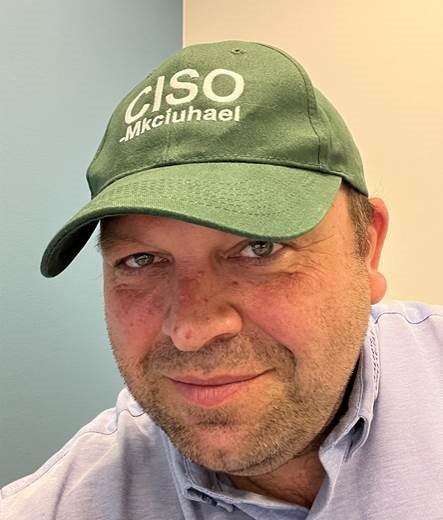
CISO på Aalborg Universitet Michael Collin fortæller om, hvordan man på AAU efter en træls oplevelse i 2020 besluttede sig for at omlægge beredskabsplanen til et format, som i dag kaldes IT Service Continuity Management, og som inkluderer "Major Incident Management" og "Katastrofehåndtering", når hændelser rammer de IT-services, som betjener Aalborg Universitet. Aalborg Universitet arbejder løbende med at have en up-to-date plan, som rent faktisk bruges, når hændelser sker. Som en del af sikringen af at planen virker, har Aalborg Universitet trukket på DKCERT, som har assisteret med test af beredskabsplanen. Michael fortæller om sin oplevelse af, hvordan det var at trække på den service, og den gavn Aalborg Universitet har haft af det. Michael giver på den baggrund også lidt indblik i sin tilgang til et beredskab i universitetssektoren.
Om Michael Collin
Udover at være CISO på AAU Michael sidder i styregruppen for DCIS-UFM og deltager også i den gruppe, som planlægger test af sektorberedskabet.
15:00
Pause
15:15
Keynote
Machine Learning i Ørerne: Hvordan DeiCs faciliteter bidrager til søvnforskning
Kaare Mikkelsen, AU
Machine Learning i Ørerne: Hvordan DeiCs faciliteter bidrager til søvnforskning
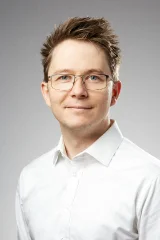
Hjerneaktivitet kan måles med små elektroder placeret på huden (EEG). I vores forskning har vi lært at placere elektroderne inden i øret, hvilket er en praktisk måde at måle på. Faktisk så praktisk, at man kan tage udstyret med ud fra laboratoriet. I min forskning analyserer jeg sådanne målinger og udvikler nye og bedre metoder til samme. Det såkaldte 'øre-EEG' er en spændende datakilde, som både giver adgang til ny og værdifuld information, men som samtidig stiller højere krav til analysemetoder. Hvad angår både kompleksitet og skalerbarhed. I dette foredrag vil jeg præsentere, hvordan jeg anvender DeiC’s ressourcer, specifikt supercomputeren LUMI, til forskning, undervisning og vejledning. Med fokus på måling af hjerneaktivitet i hjemmet vil jeg gennemgå min forskning i søvn, som spænder fra målinger af astronauter på den Internationale Rumstation (ISS) til studier med psykiatriske patienter. I foredraget vil jeg fortælle om både den konkrete forskning og om fordelene ved at samle aktiviteter på den samme hardware, som DeiCs resourcer giver mulighed for.
Om Kaare Mikkelsen
Kaare Mikkelsen forsvarede sin ph.d. i fysik ved Aarhus Universitet i 2014. Umiddelbart derefter begyndte han at forske i bærbar EEG ved det daværende Institut for Ingeniørvidenskab, også i Aarhus. Siden da har hans forskning fokuseret på signalbehandling og maskinlæring til bærbar EEG, og i særdeleshed hvordan man håndterer den manglende kontrol over måleudstyr og de personer, der deltager i optagelserne. Han blev lektor i sommeren 2024.
16:00
Tak for i år og på gensyn i 2025
Gitte Kudsk, Direktør, DeiC
Bemærk venligst at programrækkefølge og programtider kan ændre sig.